Every pool owner needs to know how to maintain the pH and chlorine levels. But, do you know what the optimal levels are? How often should you test your pool water? What is a shock treatment and how often should it be performed? We’ll cover all this and more!
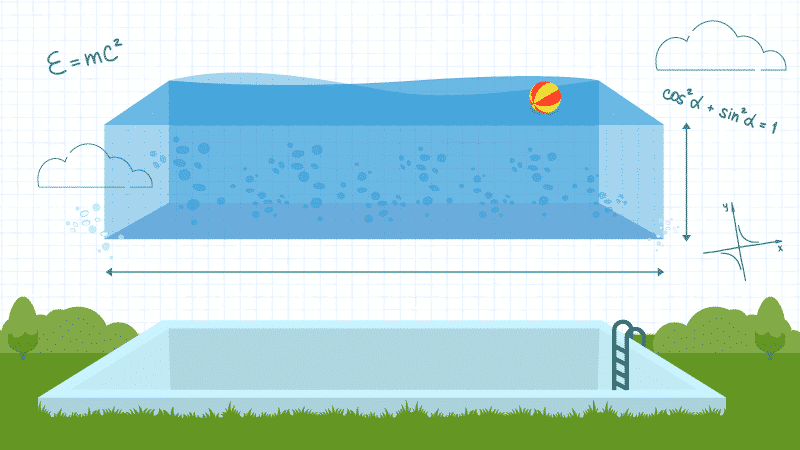
Exactly how much water does your pool hold? Use this pool volume calculator and reference chart to quickly find out.
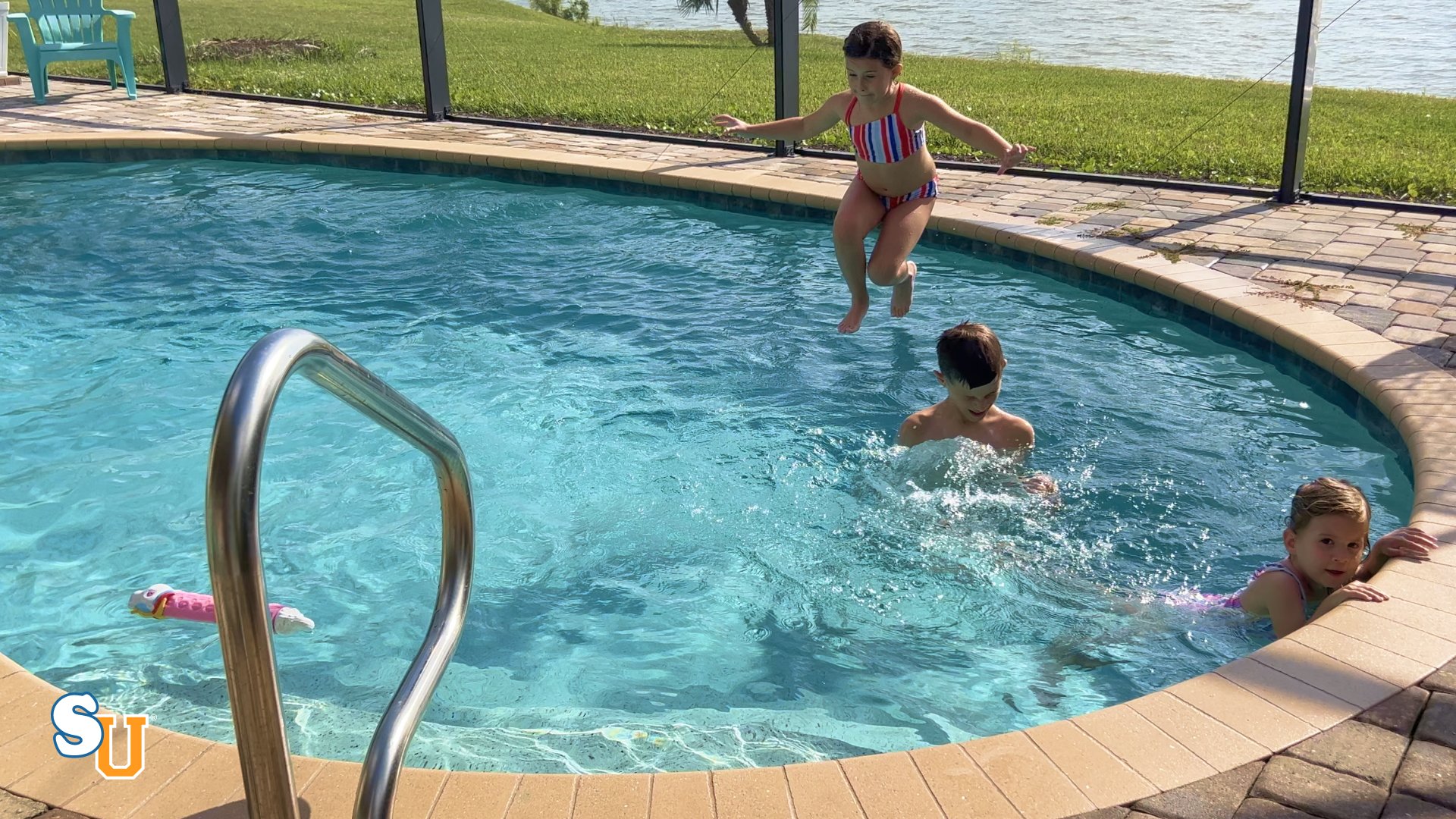
Your levels, like pH and chlorine, should all be in range before anyone gets in the water. But how long does that usually take?
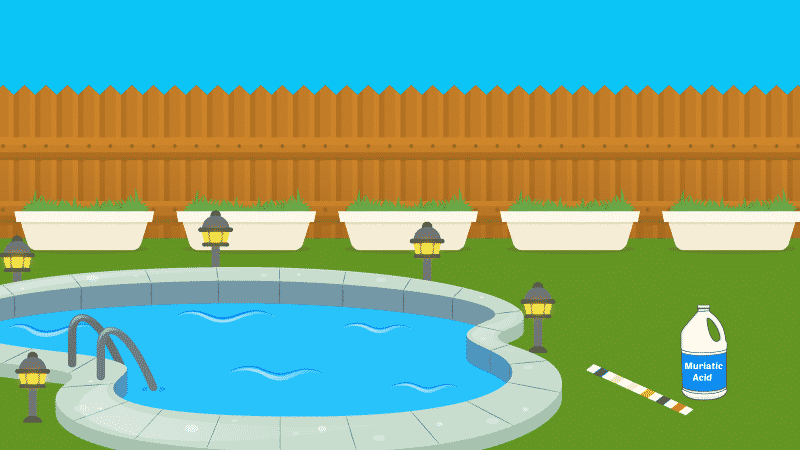
Muriatic acid is a cheap way to balance your pool's chemistry, but it can be dangerous. Here's how to use muriatic acid safely in your pool.
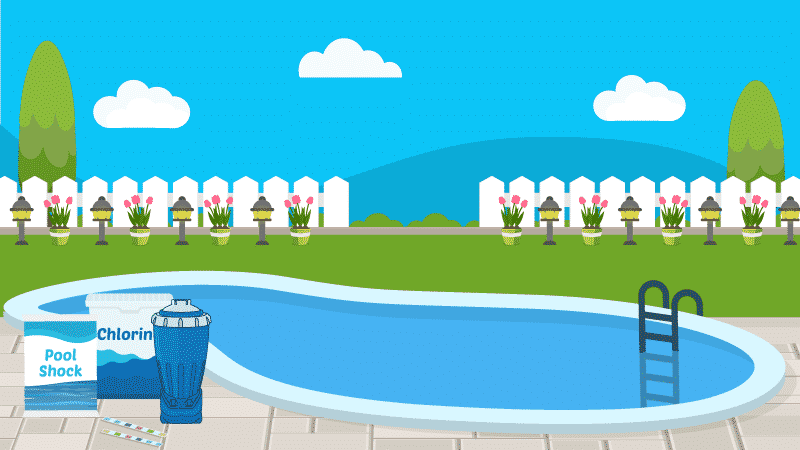
Tired of dry skin, brittle hair, and stinky "chlorine" smell? Want to spend less time balancing the water? Might be time to try a pool mineral system.
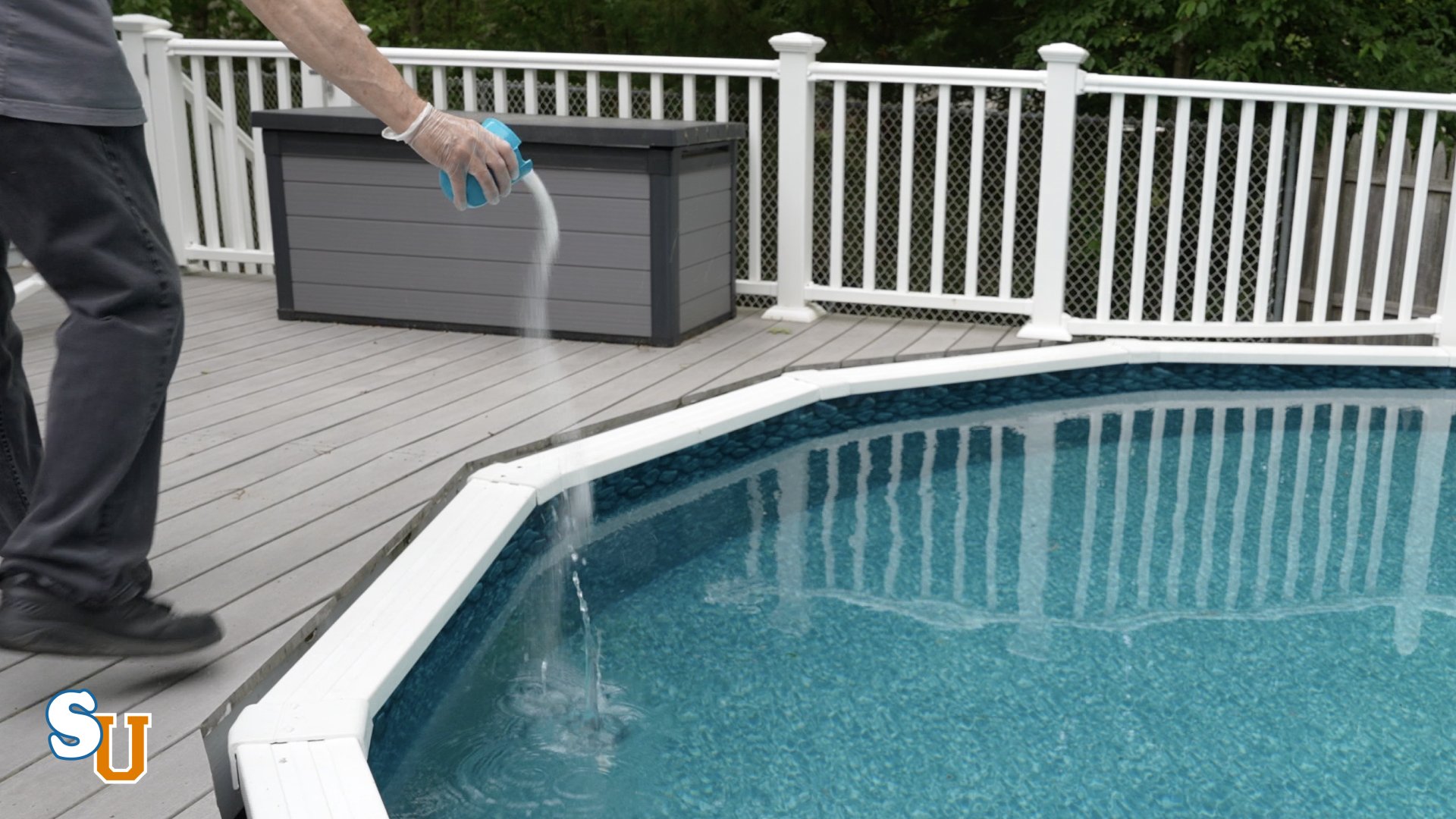
You know you have to add chemicals to your pool, but how much? Here’s a quick guide on how much of each pool chemical you need to add.
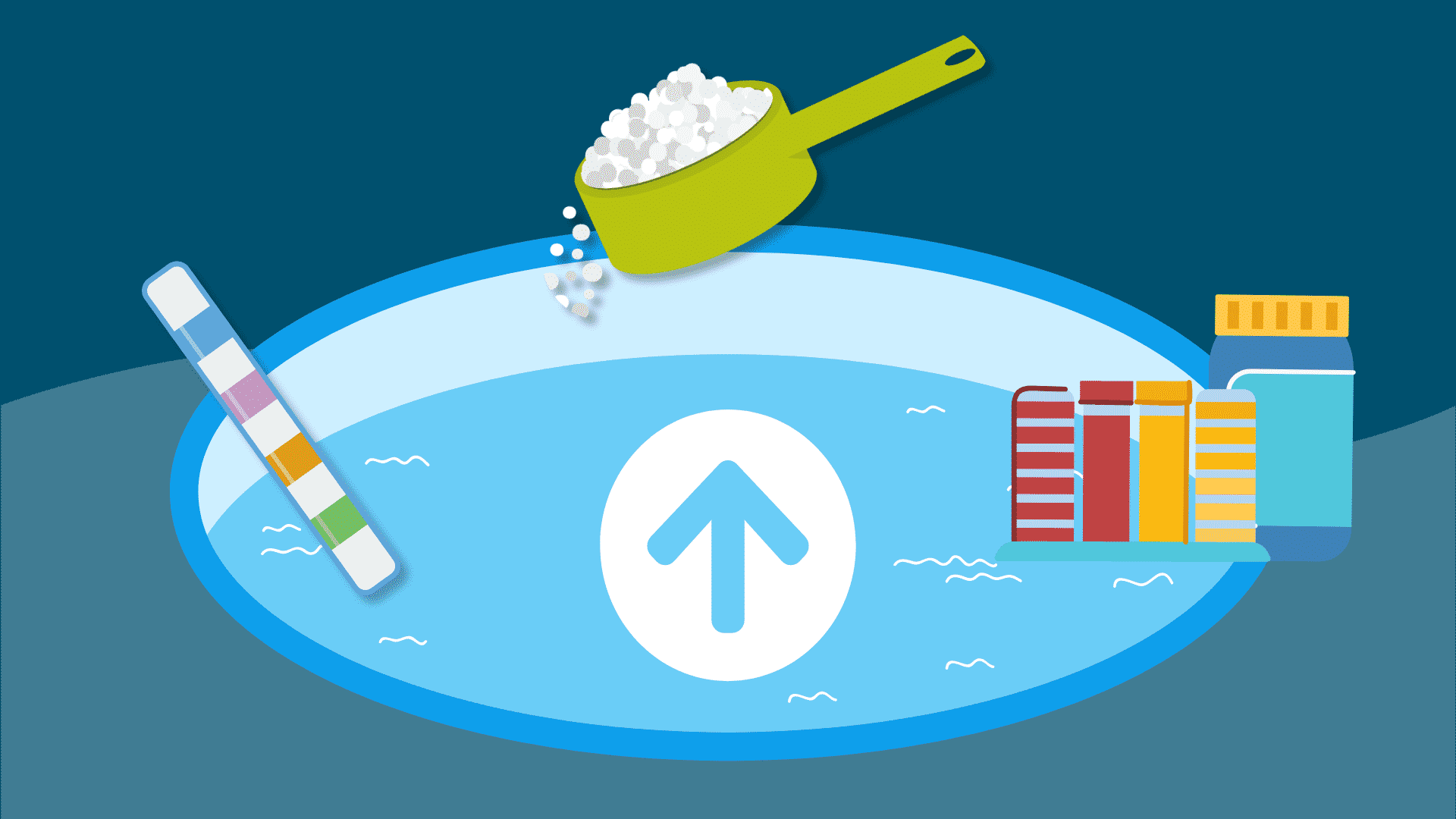
A step-by-step guide on how to raise ph in your pool with three inexpensive solutions: Soda ash, baking soda, or pH increaser.
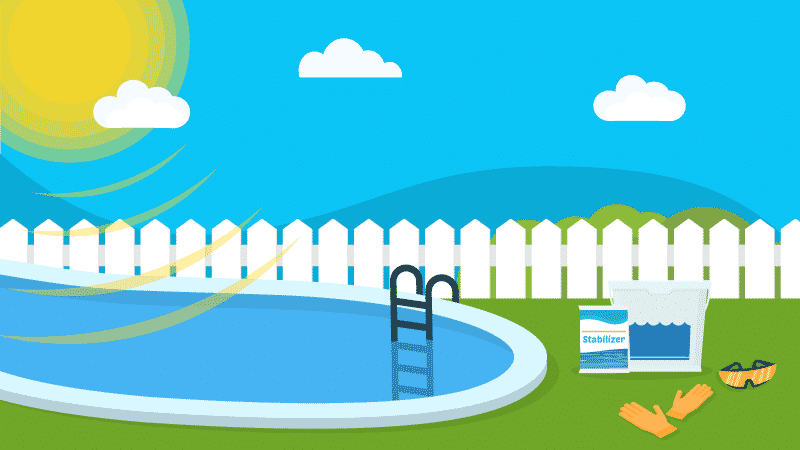
At the right levels, cyanuric acid protects chlorine in your pool and helps keep your water sanitized. Here's how to balance cyanuric acid.
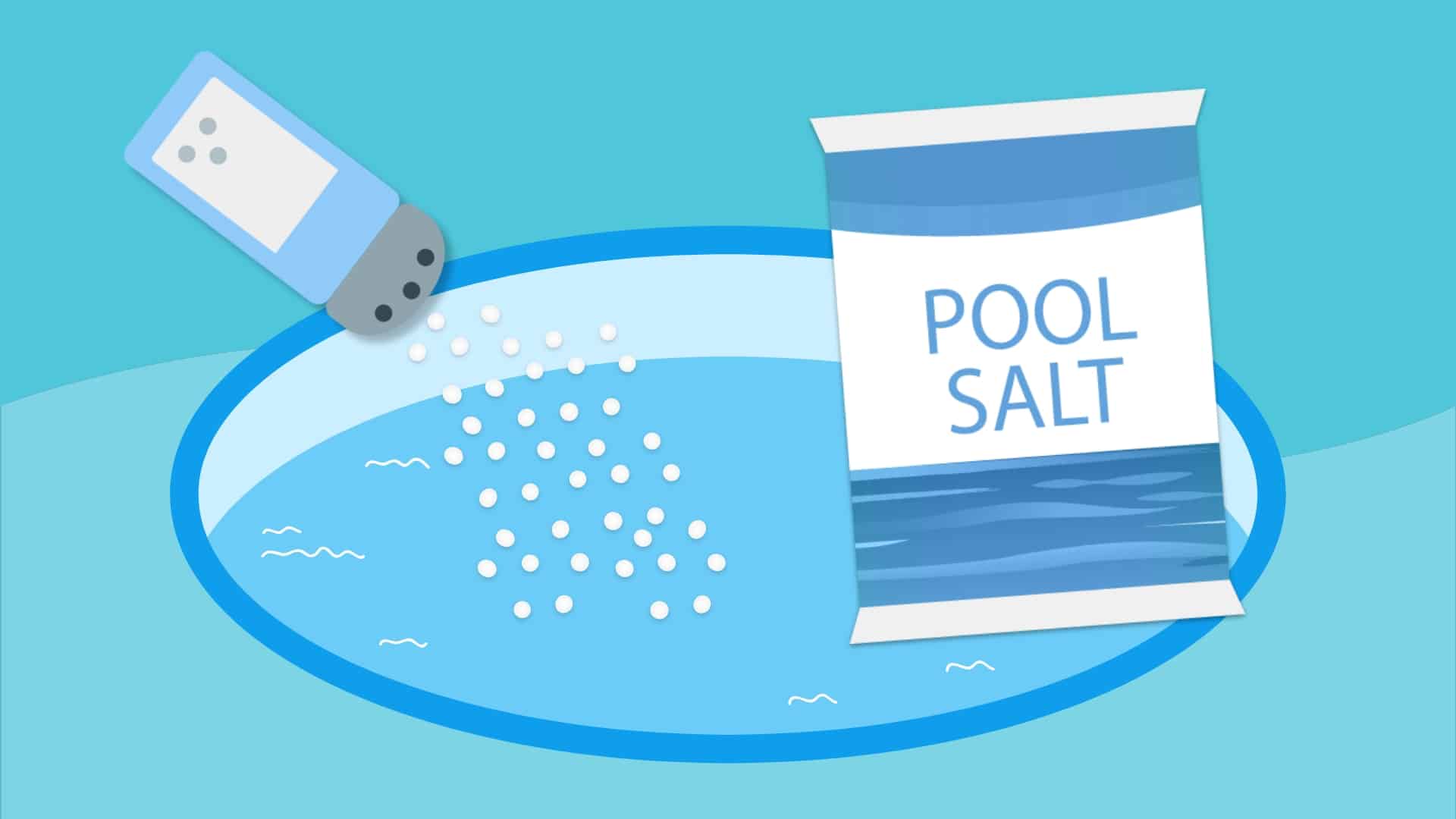
Wondering how much salt to add to your pool? Here's a simple formula for figuring out how many bags of salt you need.
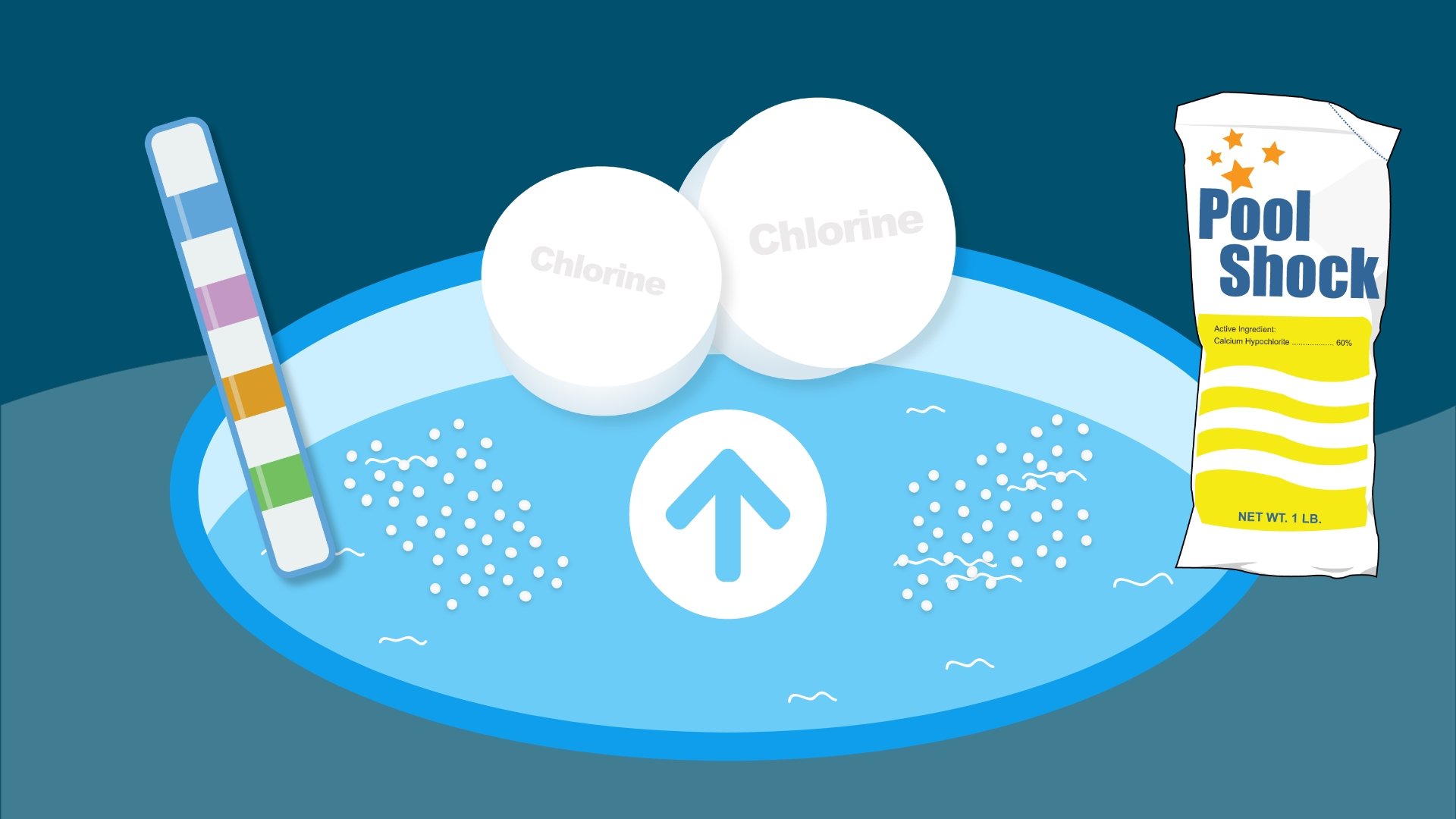
There are a few causes of low chlorine in a pool. But they're easy to fix. So here's a quick guide on how to raise free chlorine in your pool.
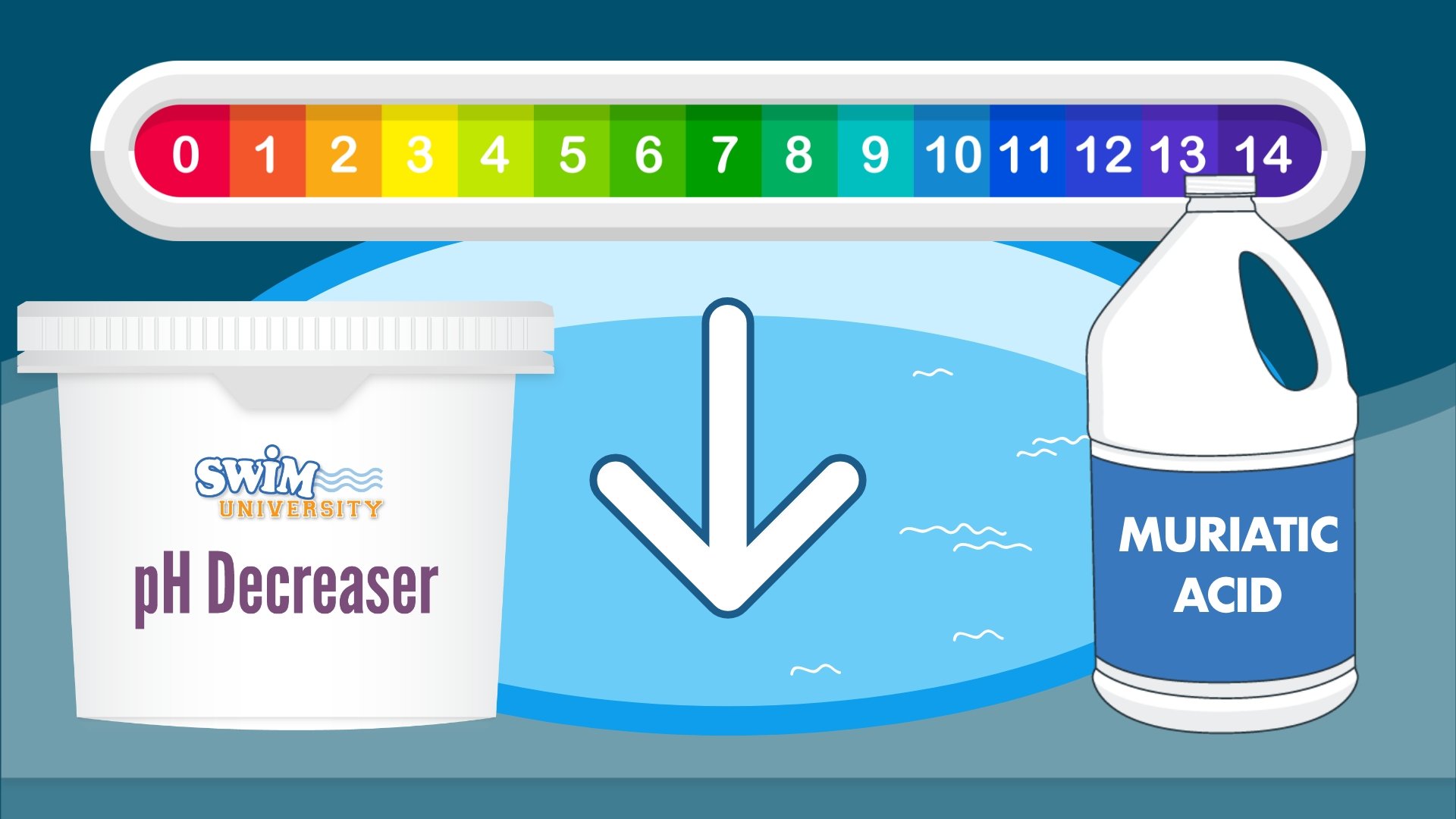
Are your pool's pH levels too high? Here's how to lower pH in a pool using either pH decreaser or muriatic acid.
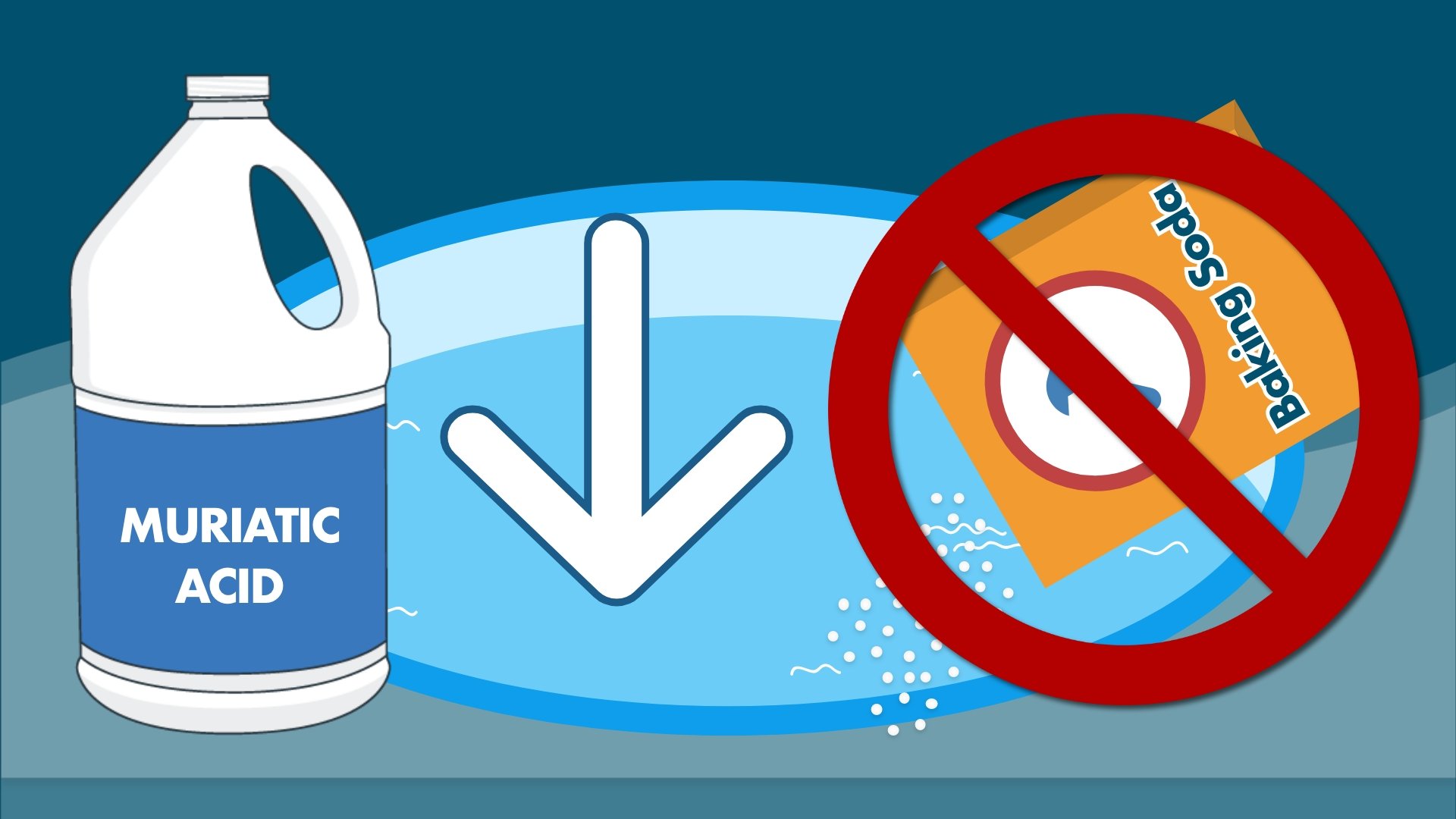
If your total alkalinity levels are too high, here's how to how to lower alkalinity in a pool with either muriatic acid or pH reducer.
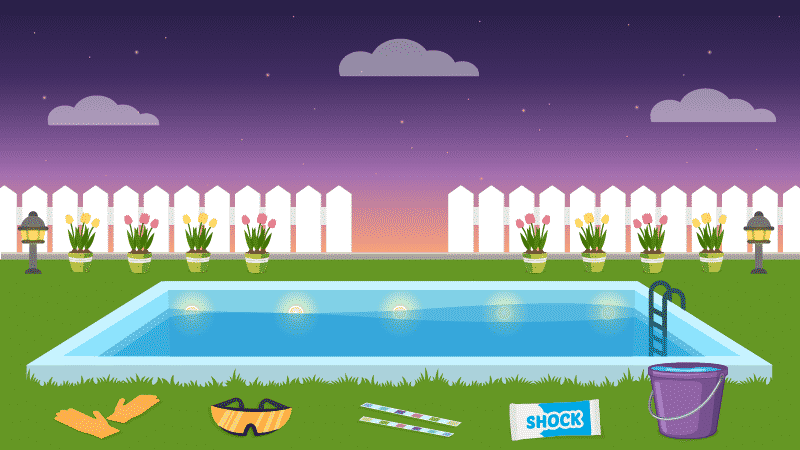
Been a while since you shocked your pool? You're laying out a doormat for algae and other contaminants. Put up a keep out sign with a dose of pool shock.
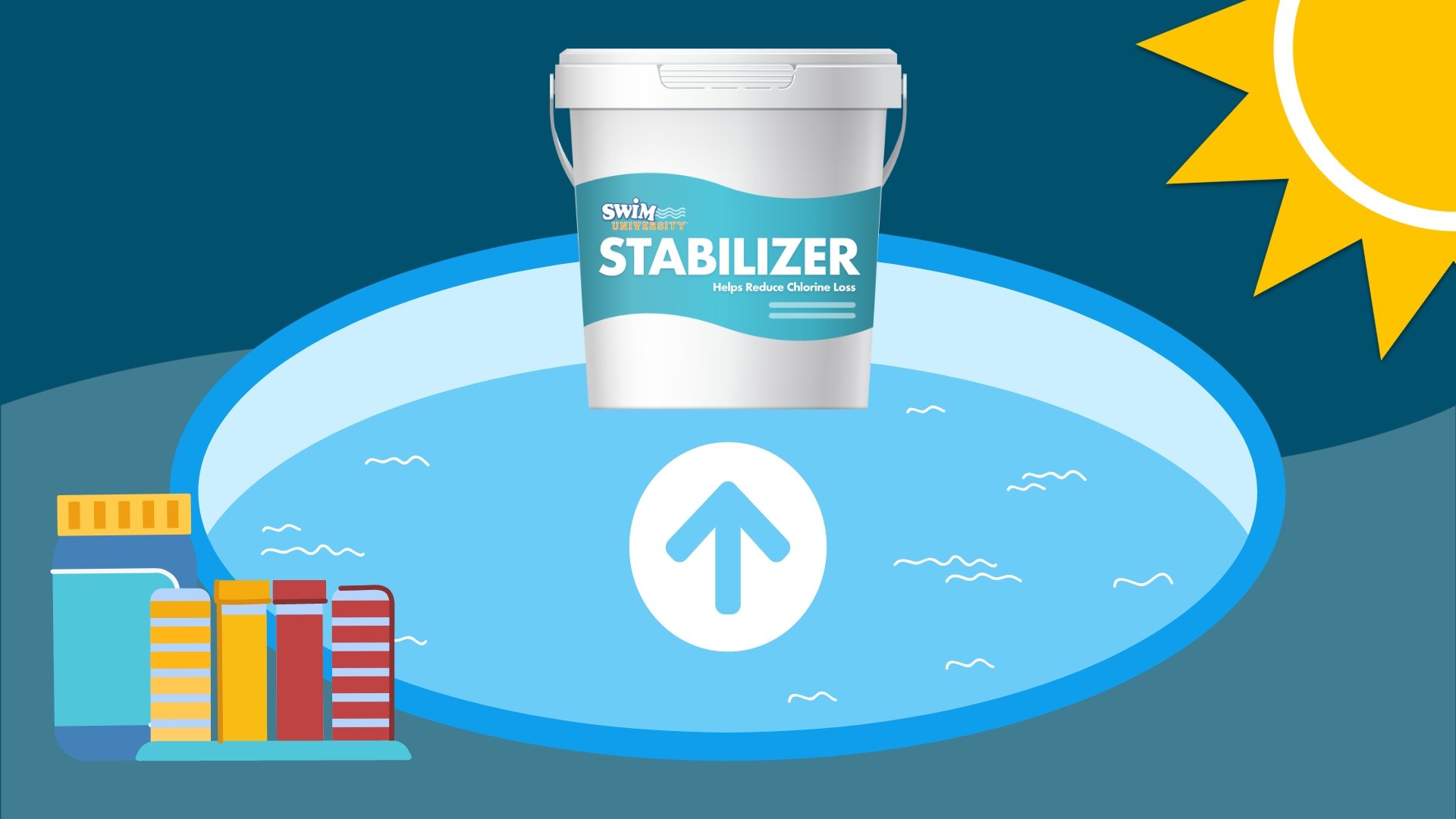
Need to raise the cyanuric acid in your pool? Here are two simple ways to bring up the CYA levels in your pool.
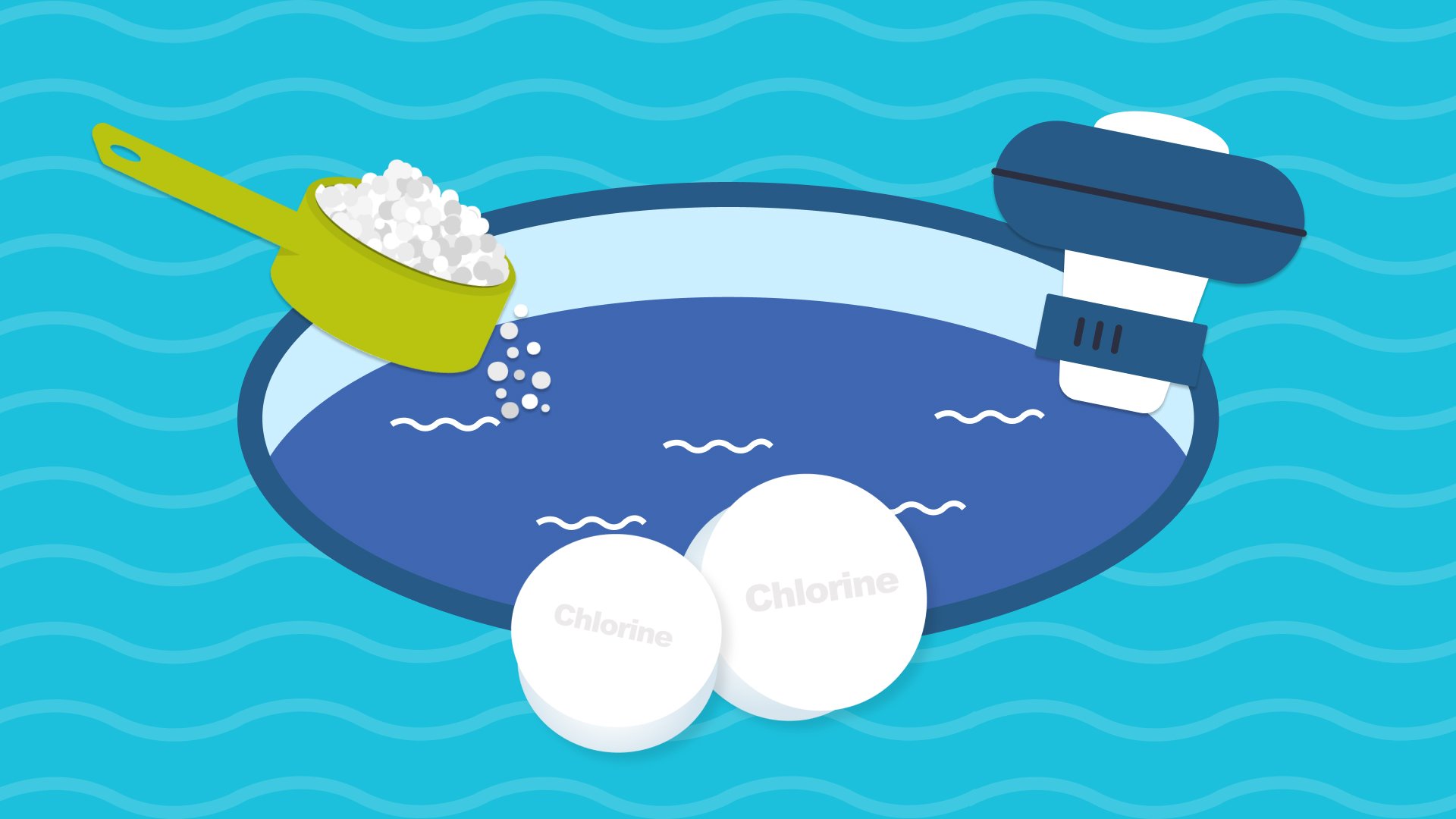
Whether you’re using tablets, granules, or liquid chlorine, you need to add chlorine to your pool about once a week. So here’s a quick guide...
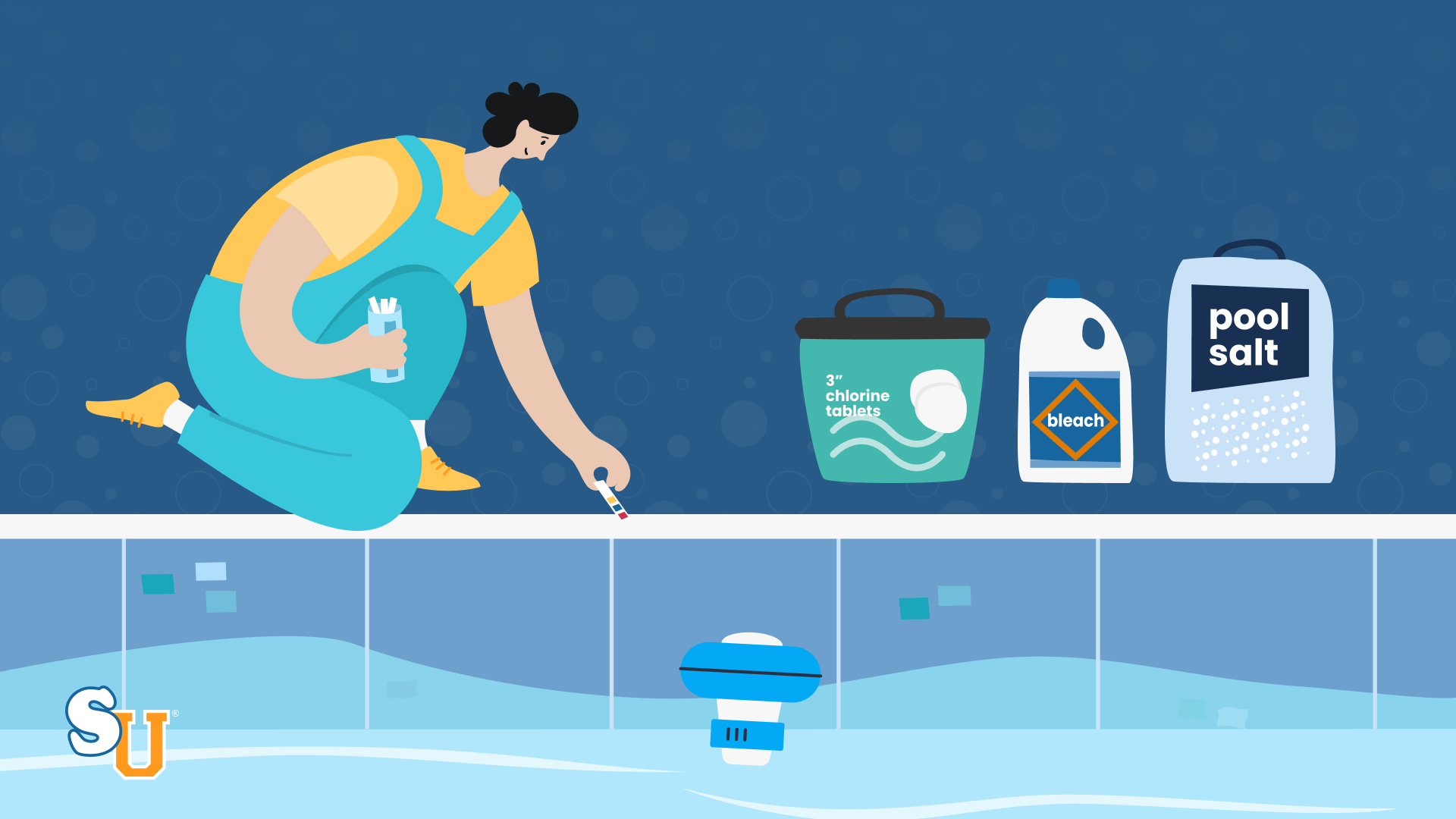
How much chlorine does your pool need? It depends on the size of your pool and what type of chlorine you buy. Here's our complete guide...
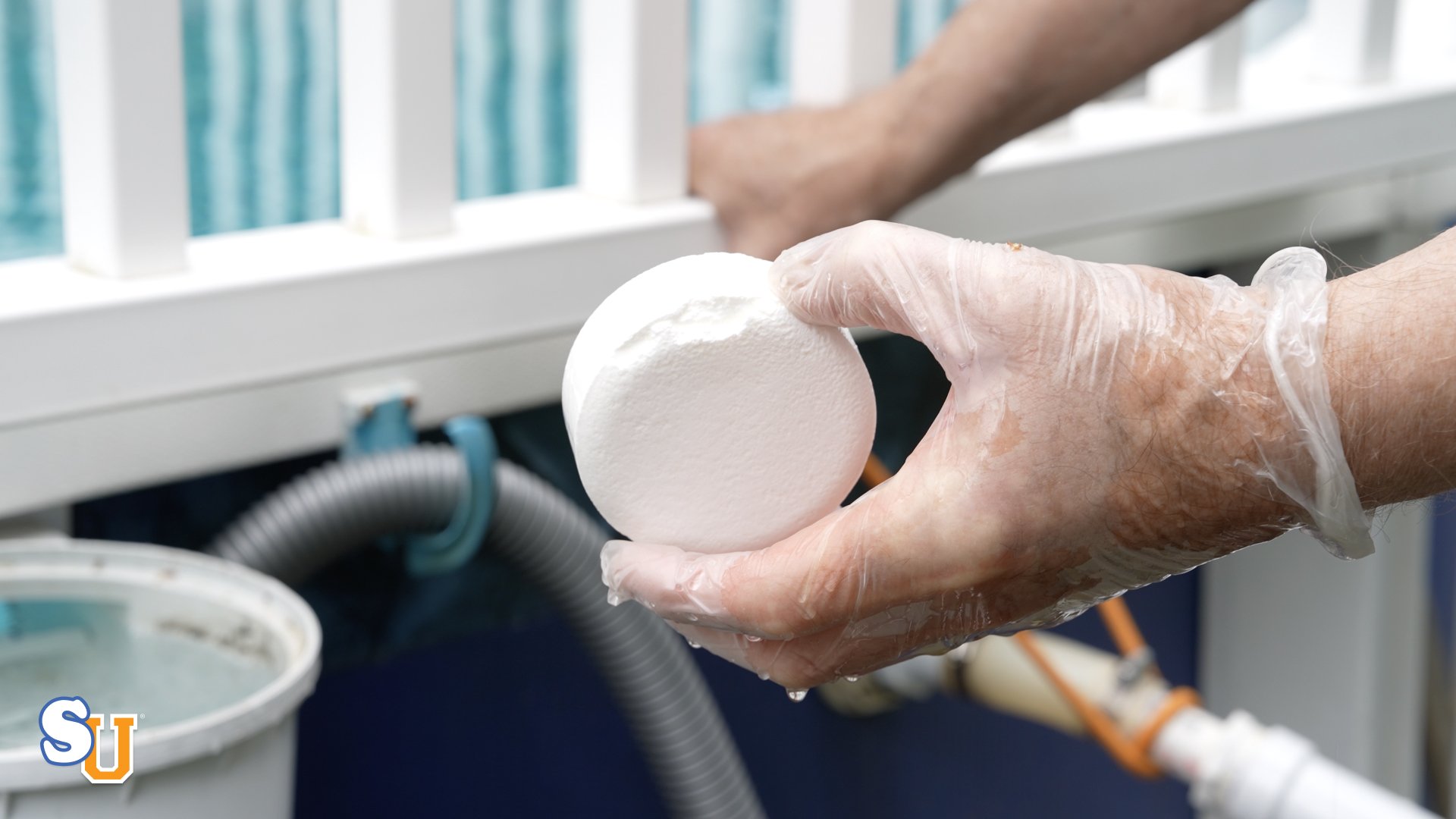
Did you know you should be adjusting your above ground pool chemicals once a week? Here’s a quick guide on how to test and balance your pool.
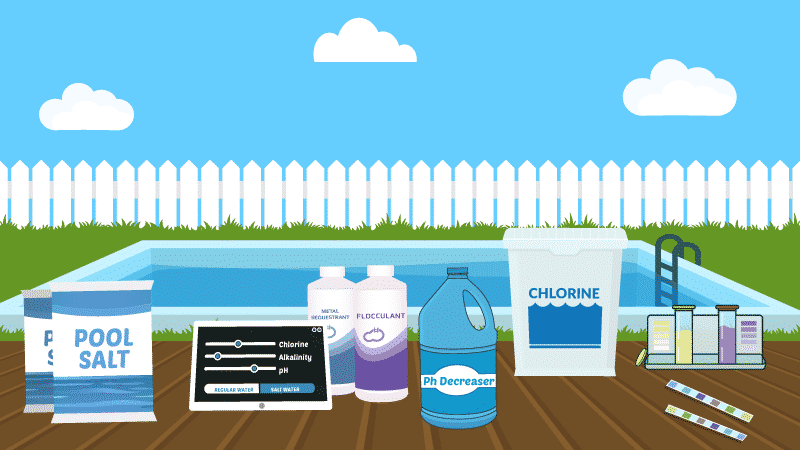
Are you leaving some important substances out of your pool water testing? Learn what you might be missing, how it can affect your pool, and how to fix it.
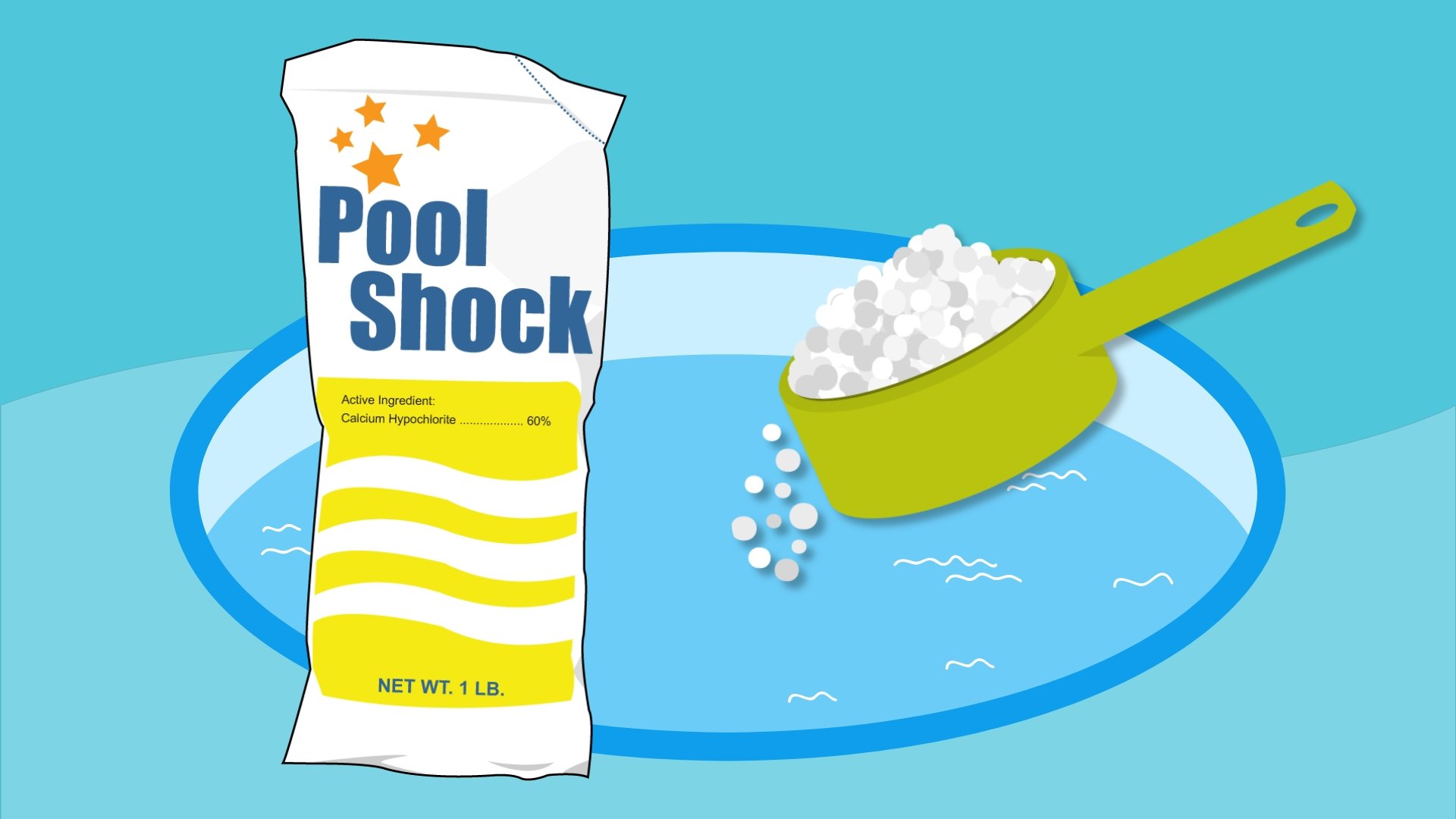
Exactly how much shock should you add to your pool? It depends on your pool's water. Here's how to calculate the right amount of pool shock.
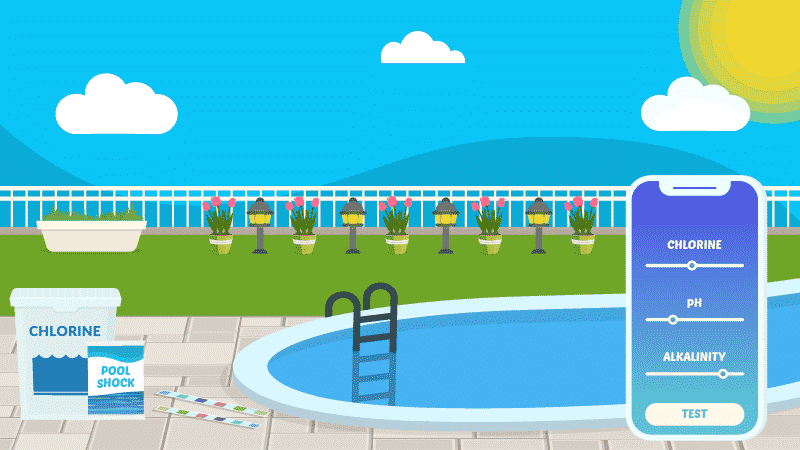
We’ve put together a list of exceptional spa and pool chemical calculator apps you can use for water balancing and maintenance.
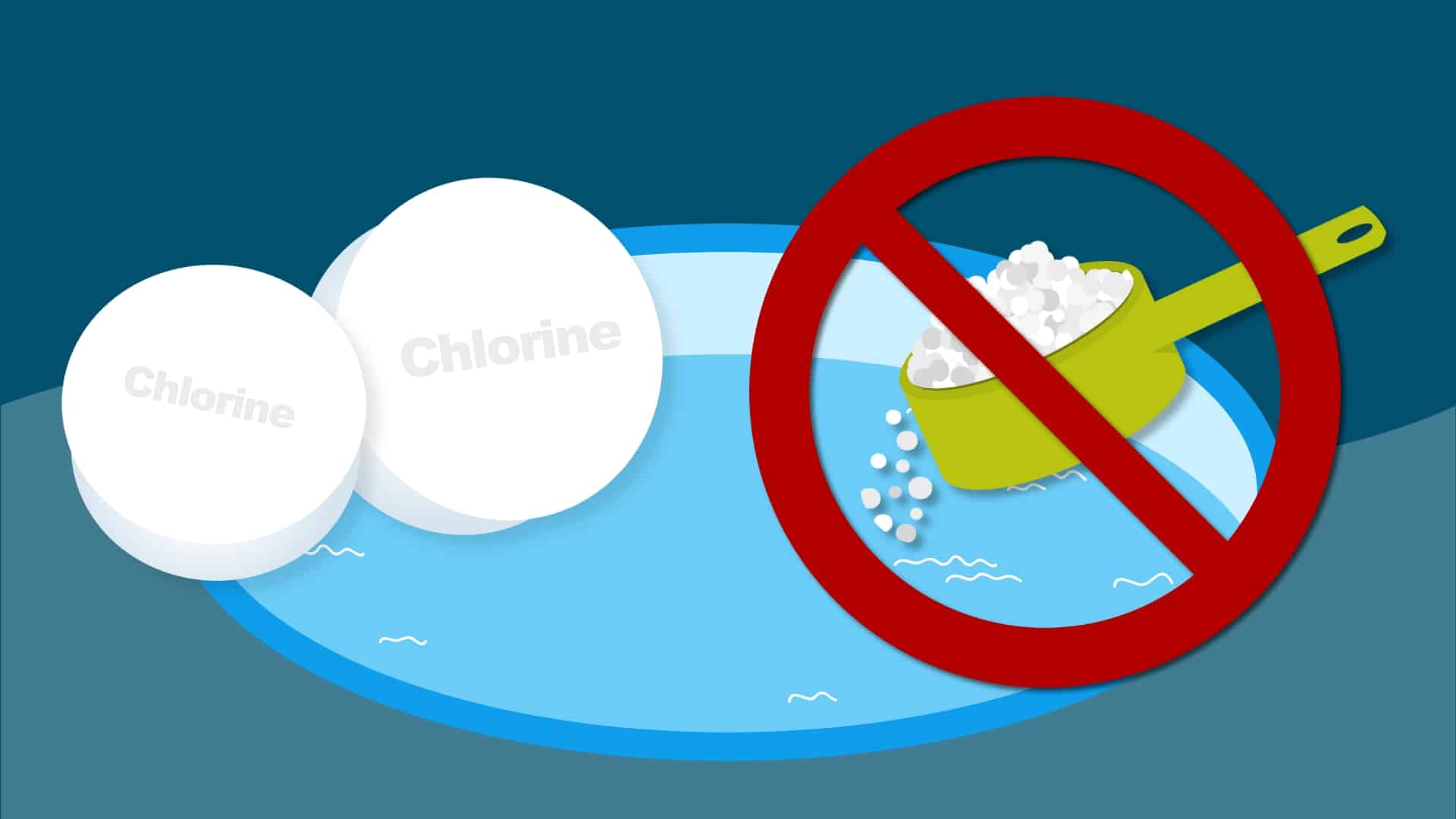
Should you switch from granules to chlorine tablets? Yes, if you're looking for an easier, more effective way to sanitize your pool. Find out why.
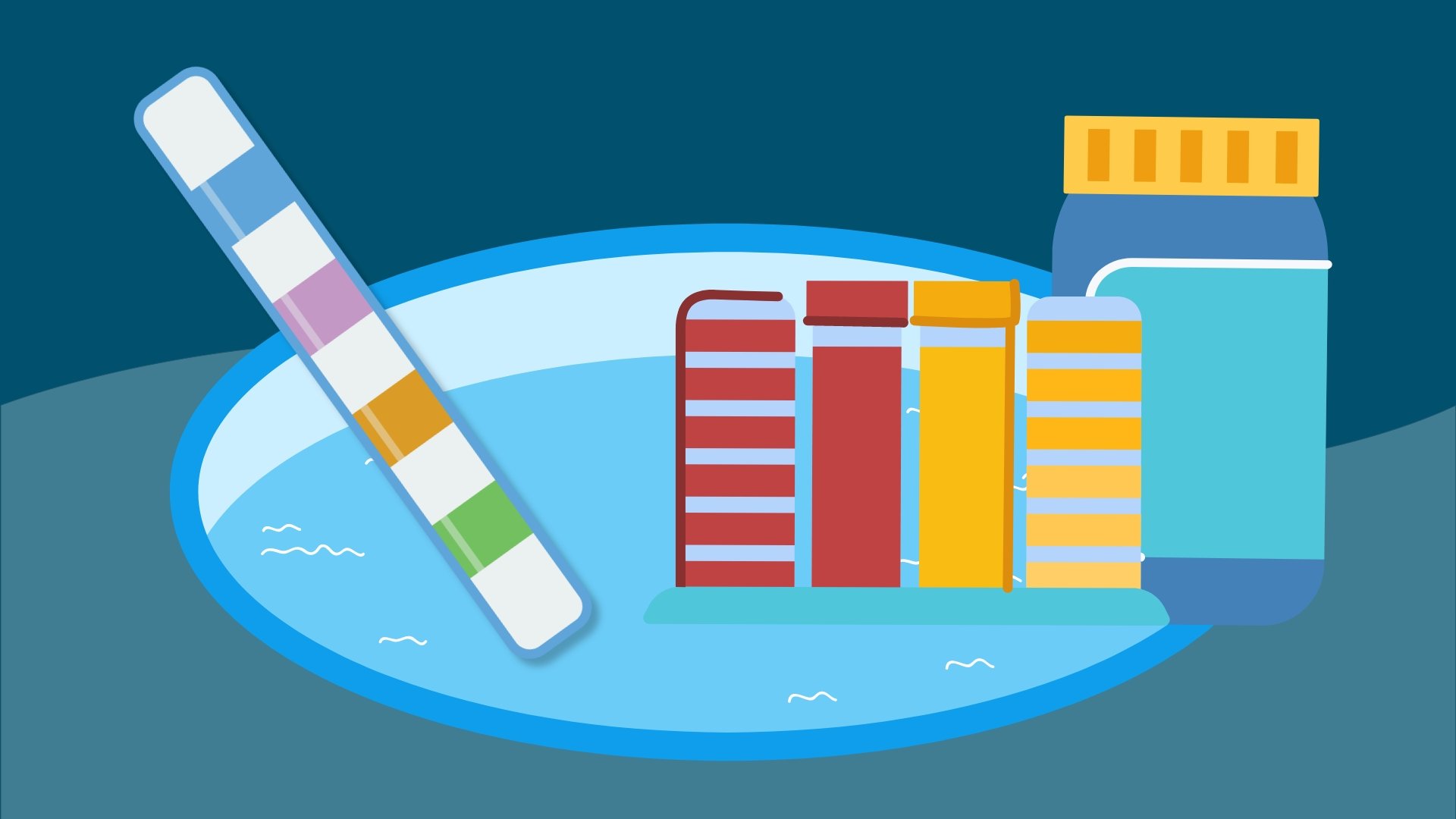
Looking for the best pool test kit? Here are the most accurate and reliable options for testing your pool water chemistry.
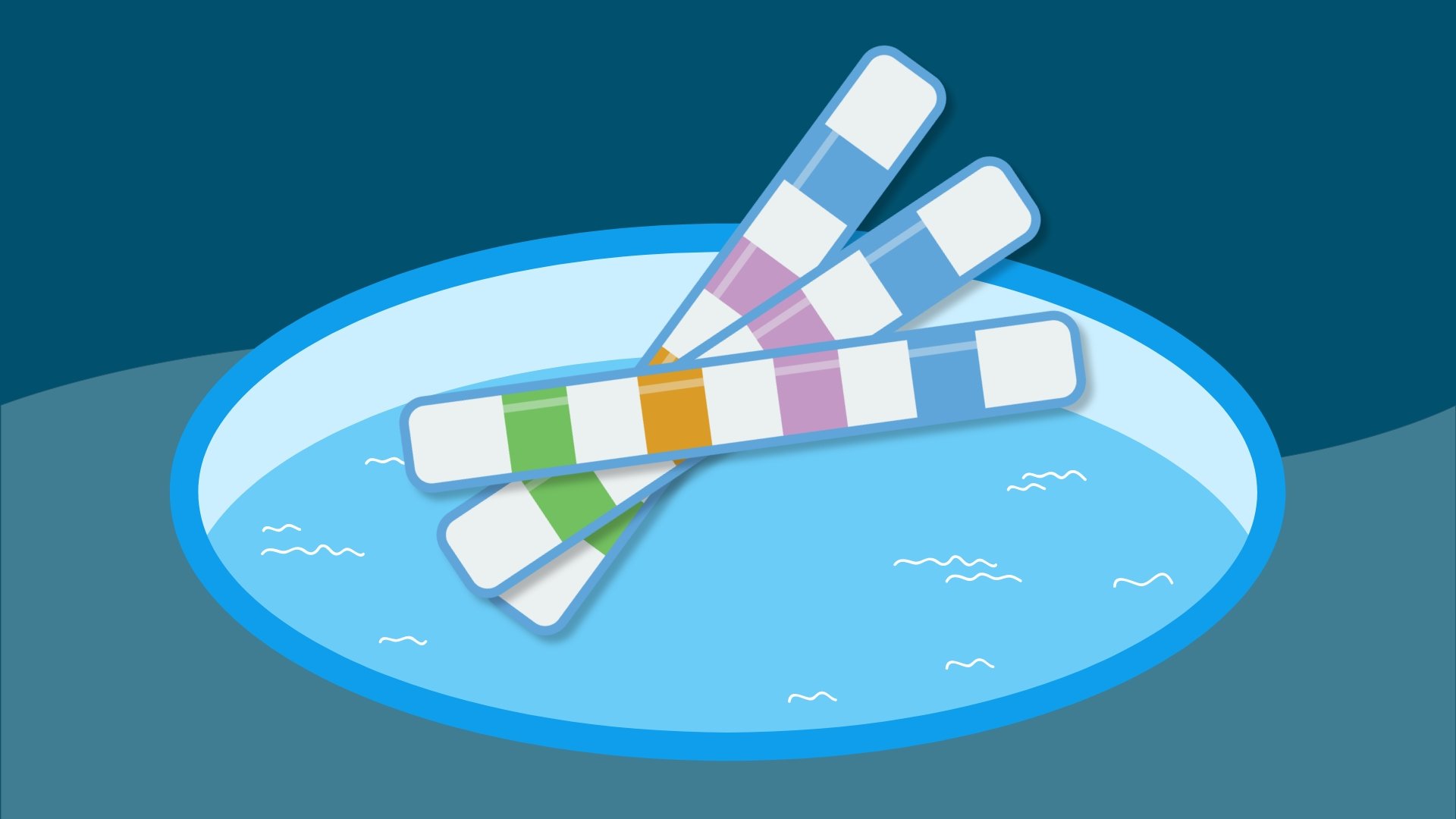
Need to test your pool water? Here's the right way to use pool test strips to get the most accurate reading.
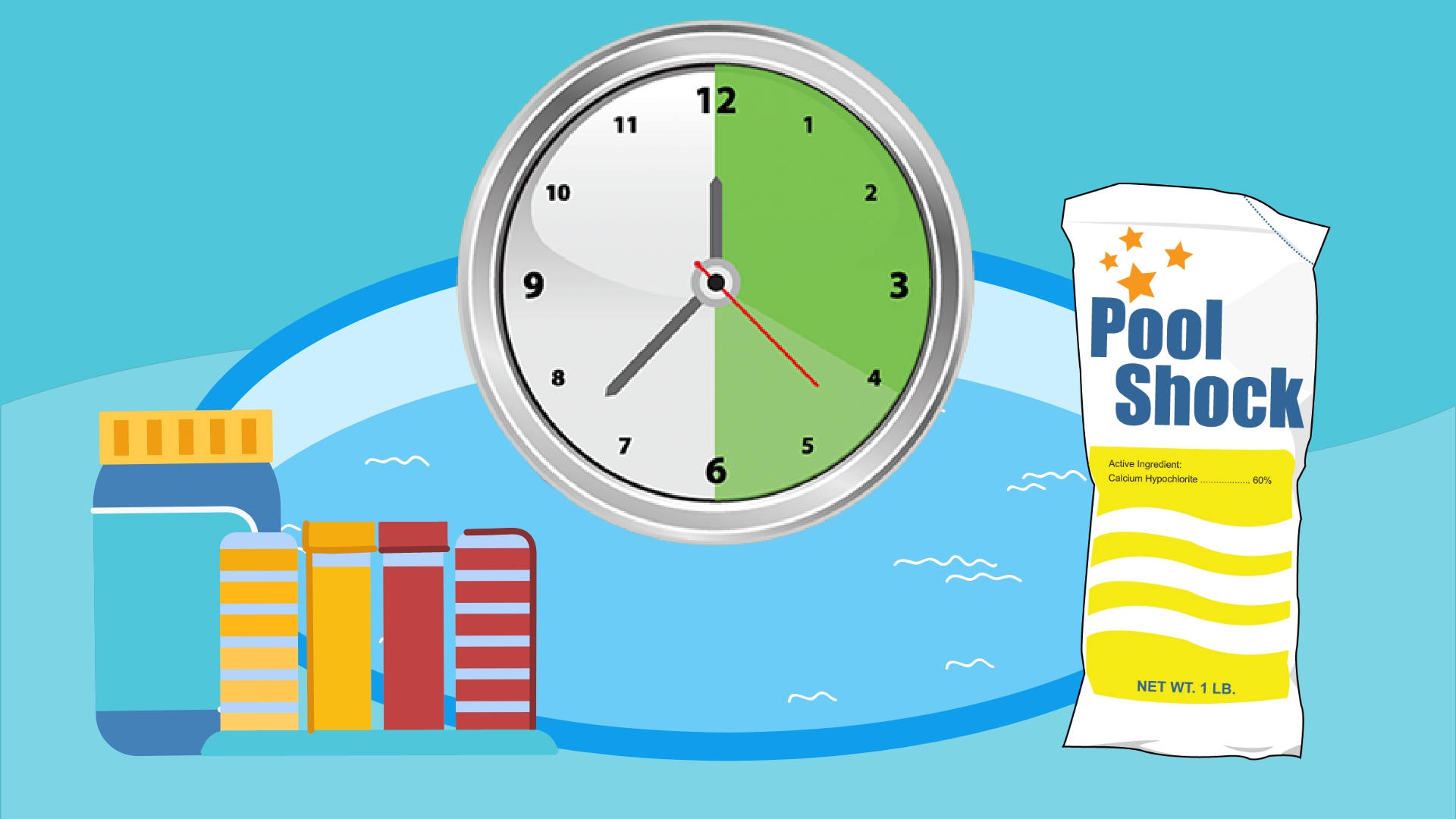
How long should you wait to swim after shocking your pool? It depends on the type of shock you use. Here's a quick guide on how long to wait.
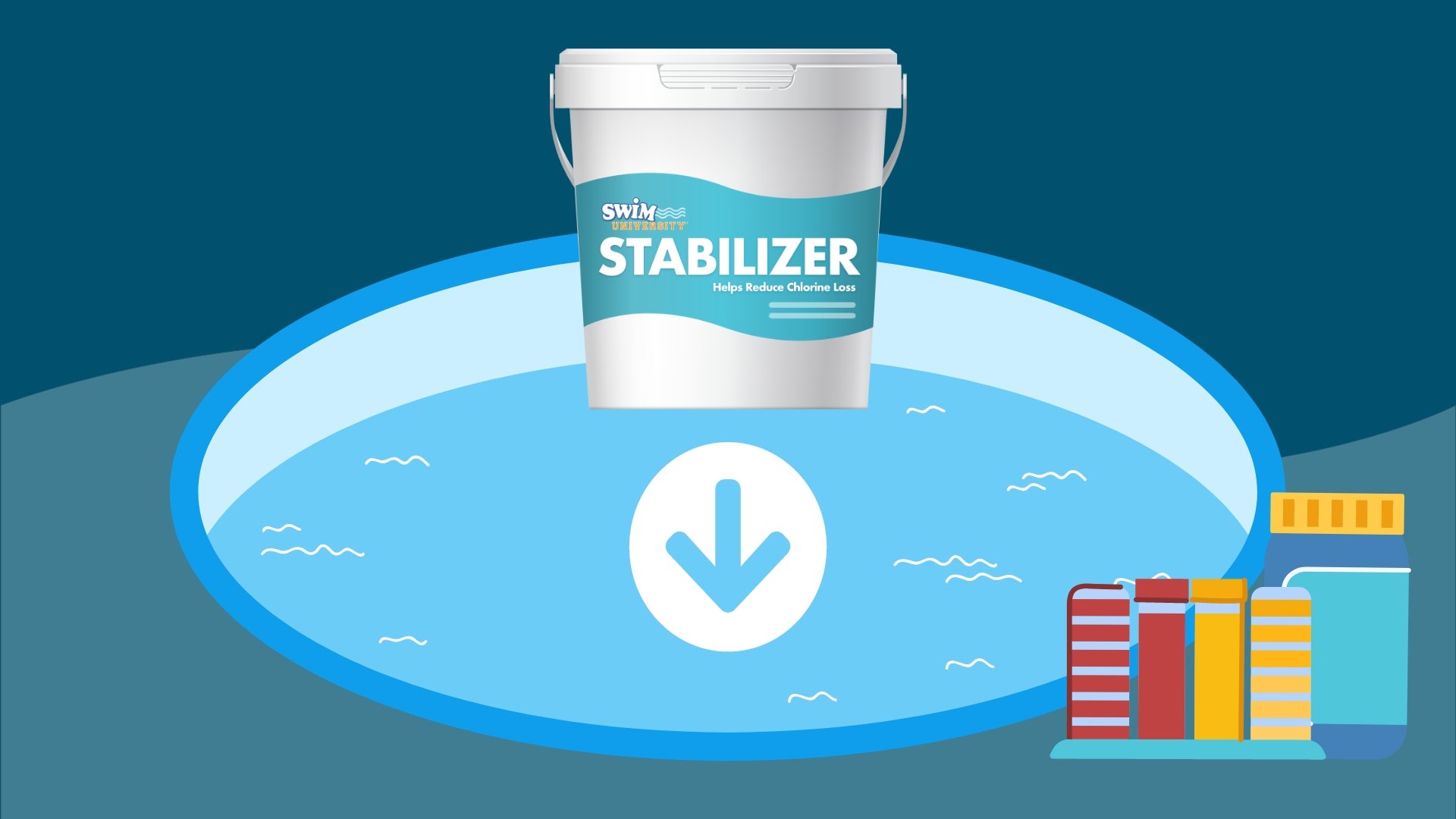
Need to lower the cyanuric acid in your pool? Here's the guaranteed way to bring down your CYA levels in your pool water.
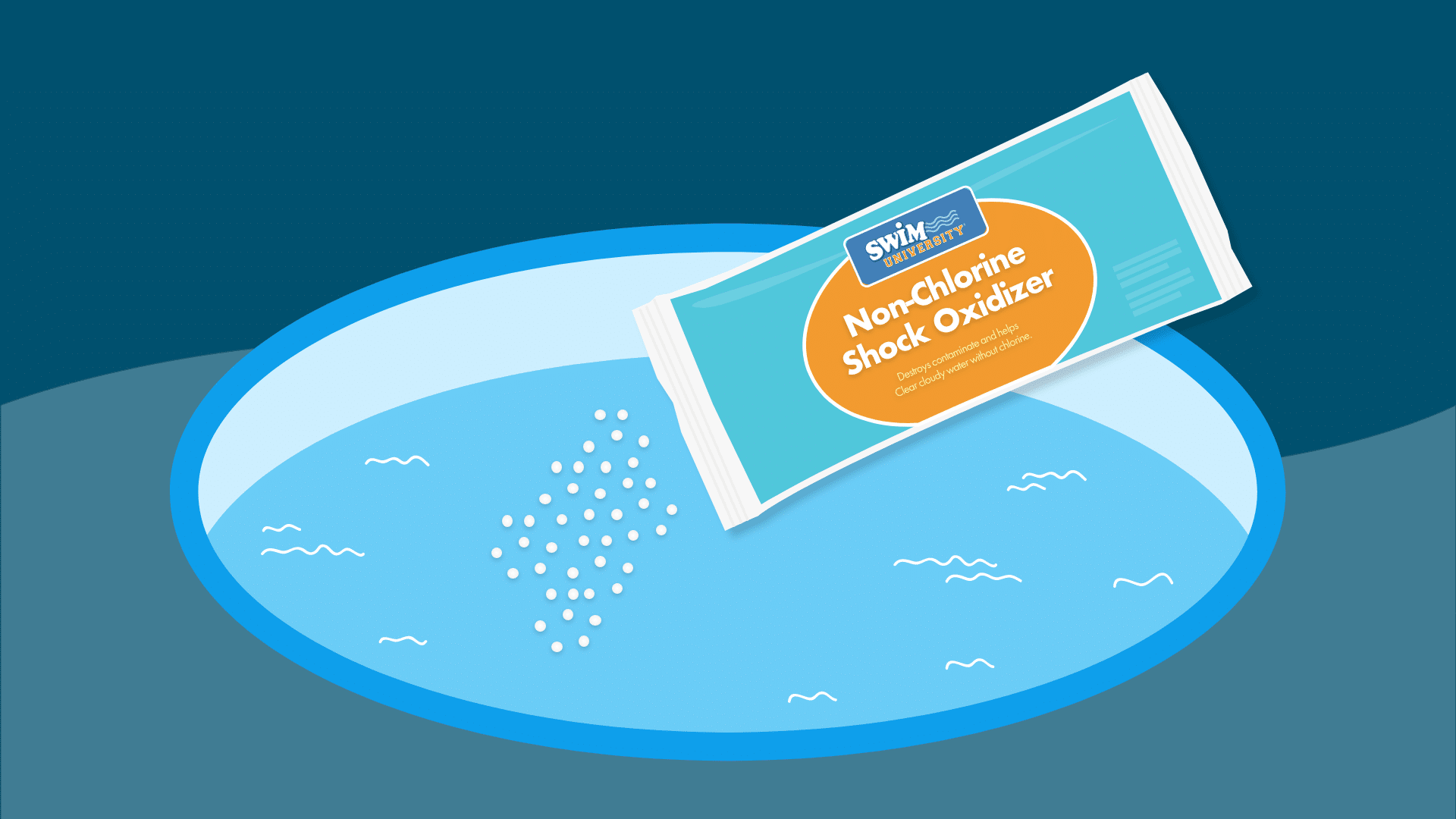
Is a non-chlorine shock right for your pool? Here are a few pool maintenance scenarios when it works well and when it doesn't.
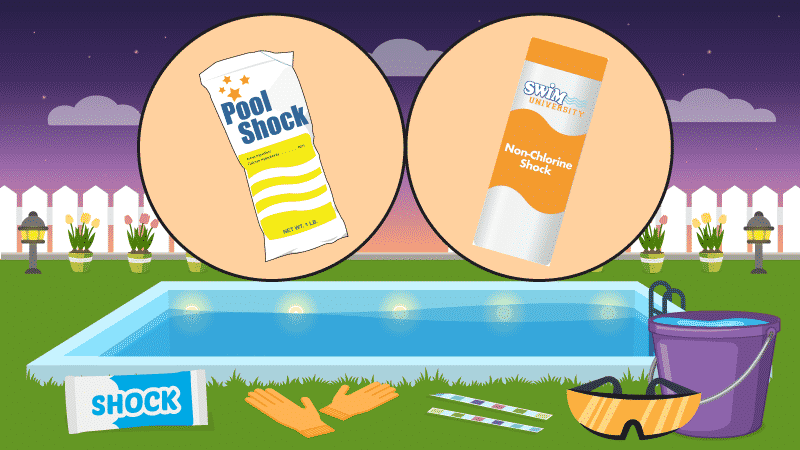
Finding the best pool shock depends on the type of pool you have and what water issues you're dealing with. Here's what to look for.
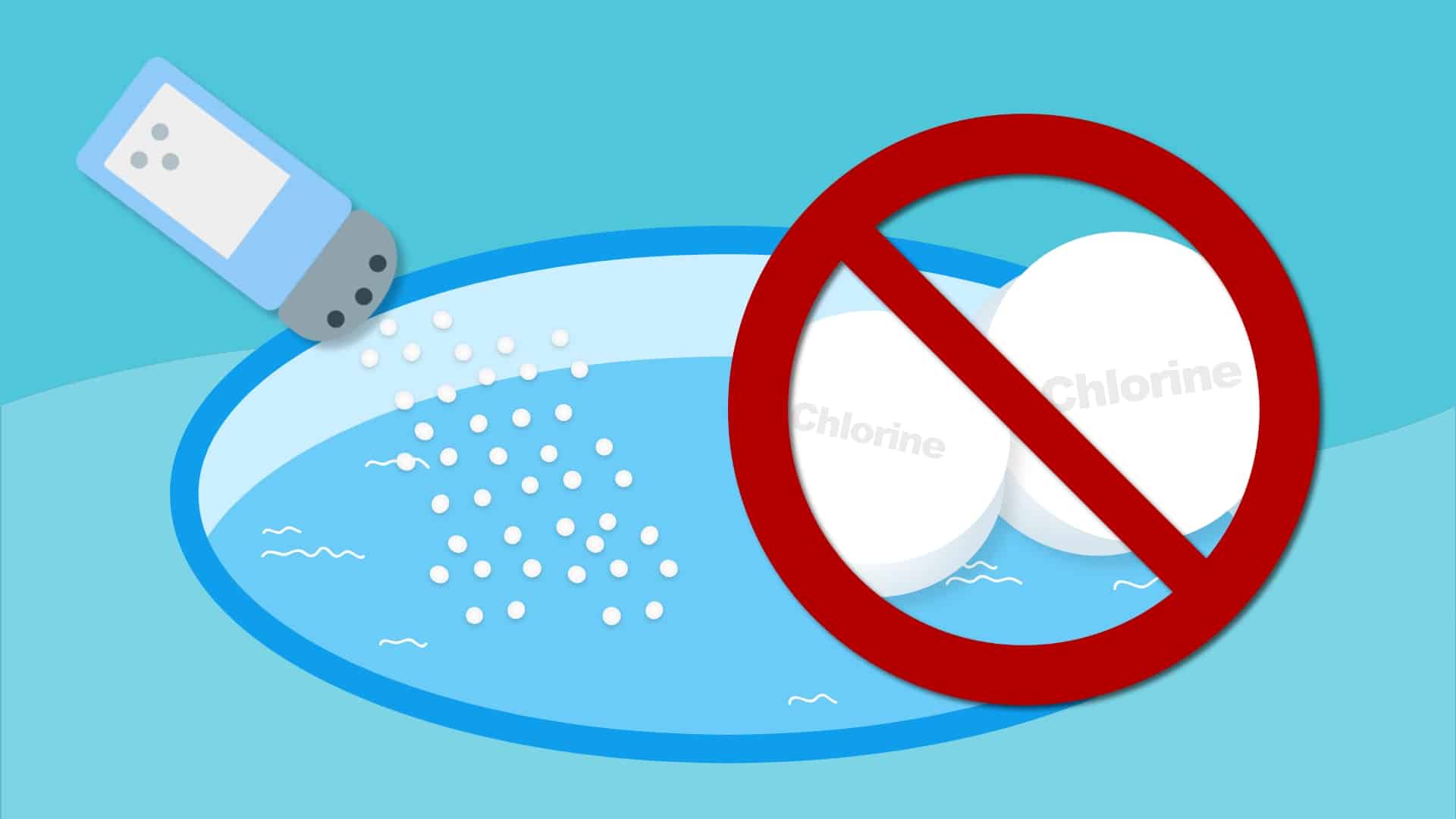
Should you convert your chlorine pool to a salt water pool? Before you buy a salt water system, here are the must-know pros and cons.
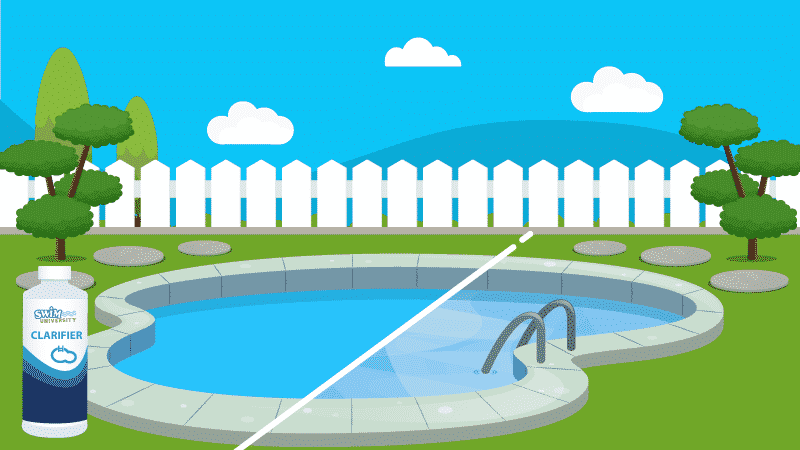
Pool clarifier is an easy way to clear up cloudy pool water. But how should you use it? Here's when to use a water clarifier for your pool.
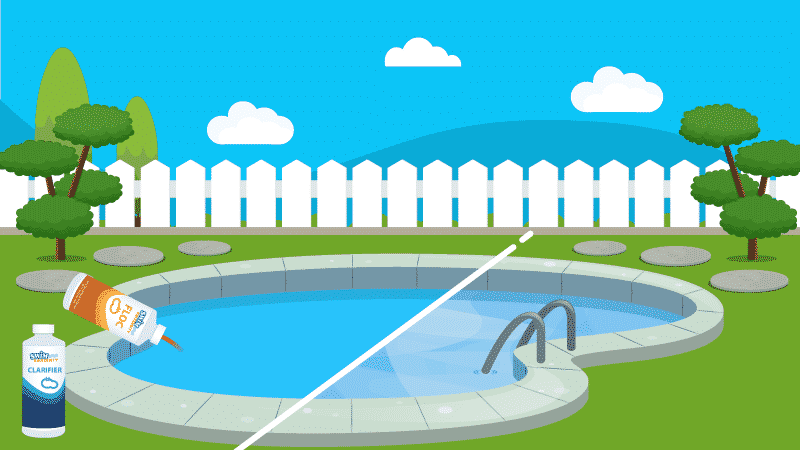
Pool flocculant can clear up cloudy pool water fast. But when should you use flocculant over clarifier? Here's exactly how to use pool floc.
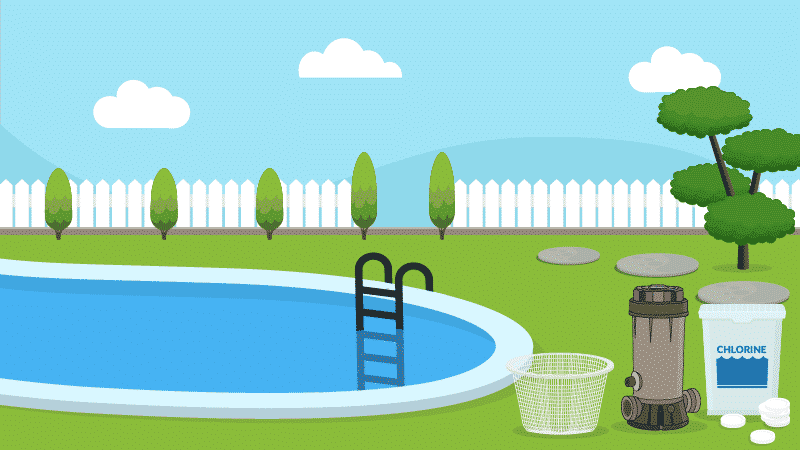
A pool chlorinator is an easy way of automatically dispensing chlorine into your pool. Here's what to know about using one in your pool.
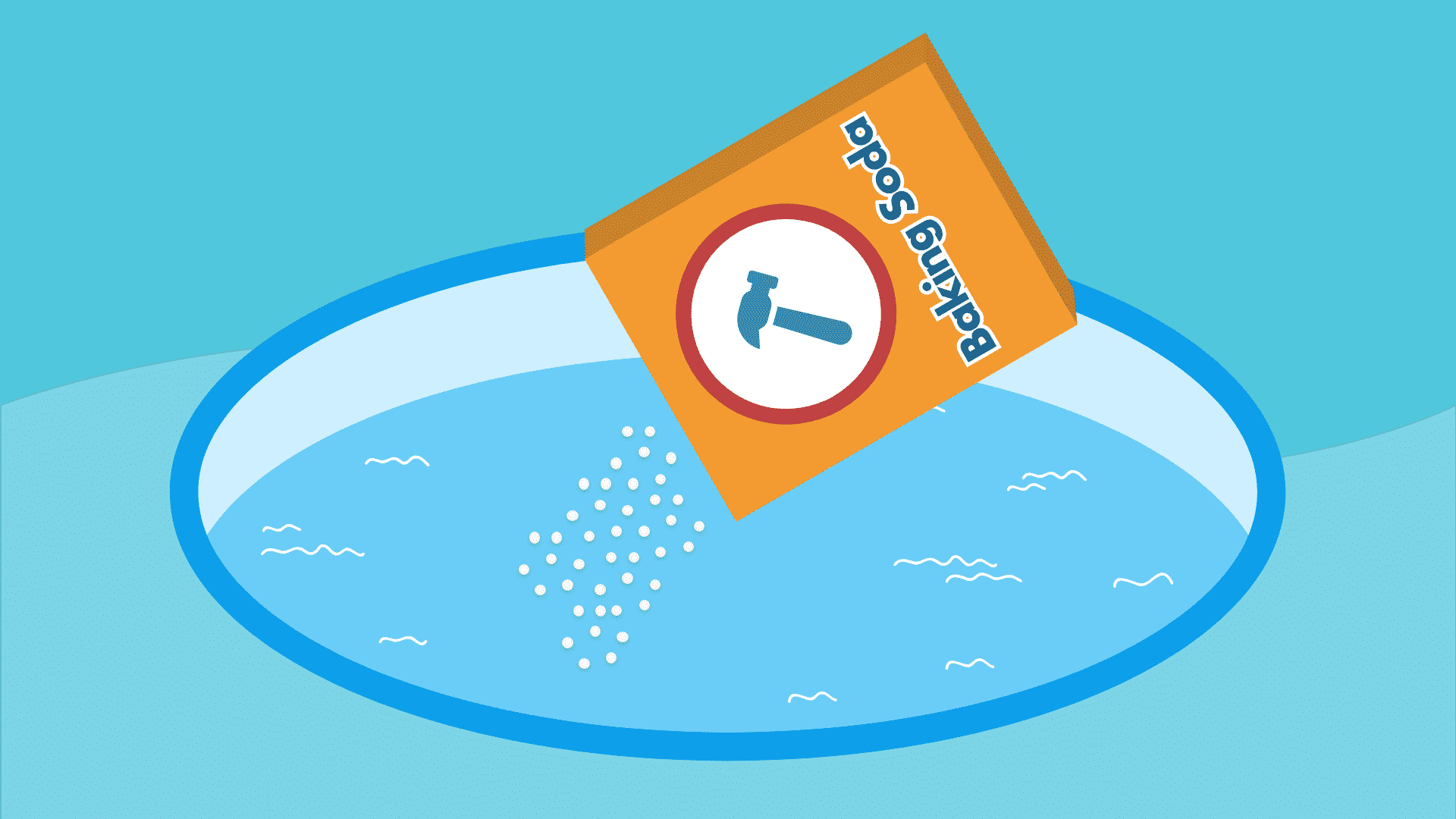
Some brands of alkalinity increaser are just sodium bicarbonate which is baking soda. Learn when and how much baking soda to add to your pool.
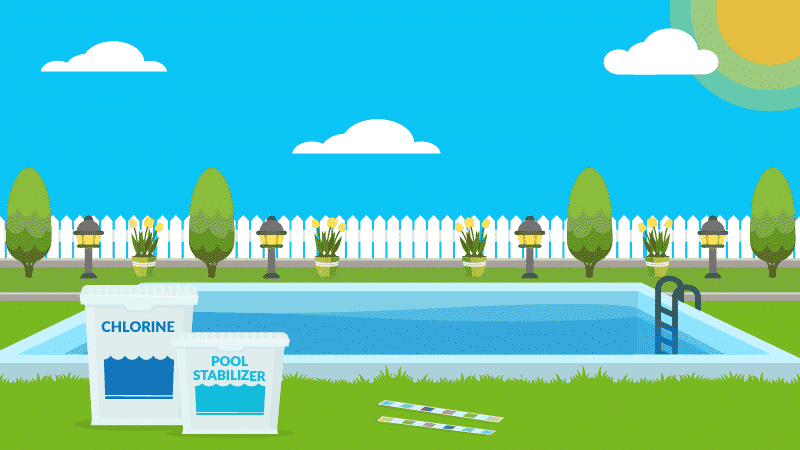
Does adding a pool chemical once a year sound too good to be true? Welcome to pool stabilizer! Learn how important it is to your pool's cleanliness.
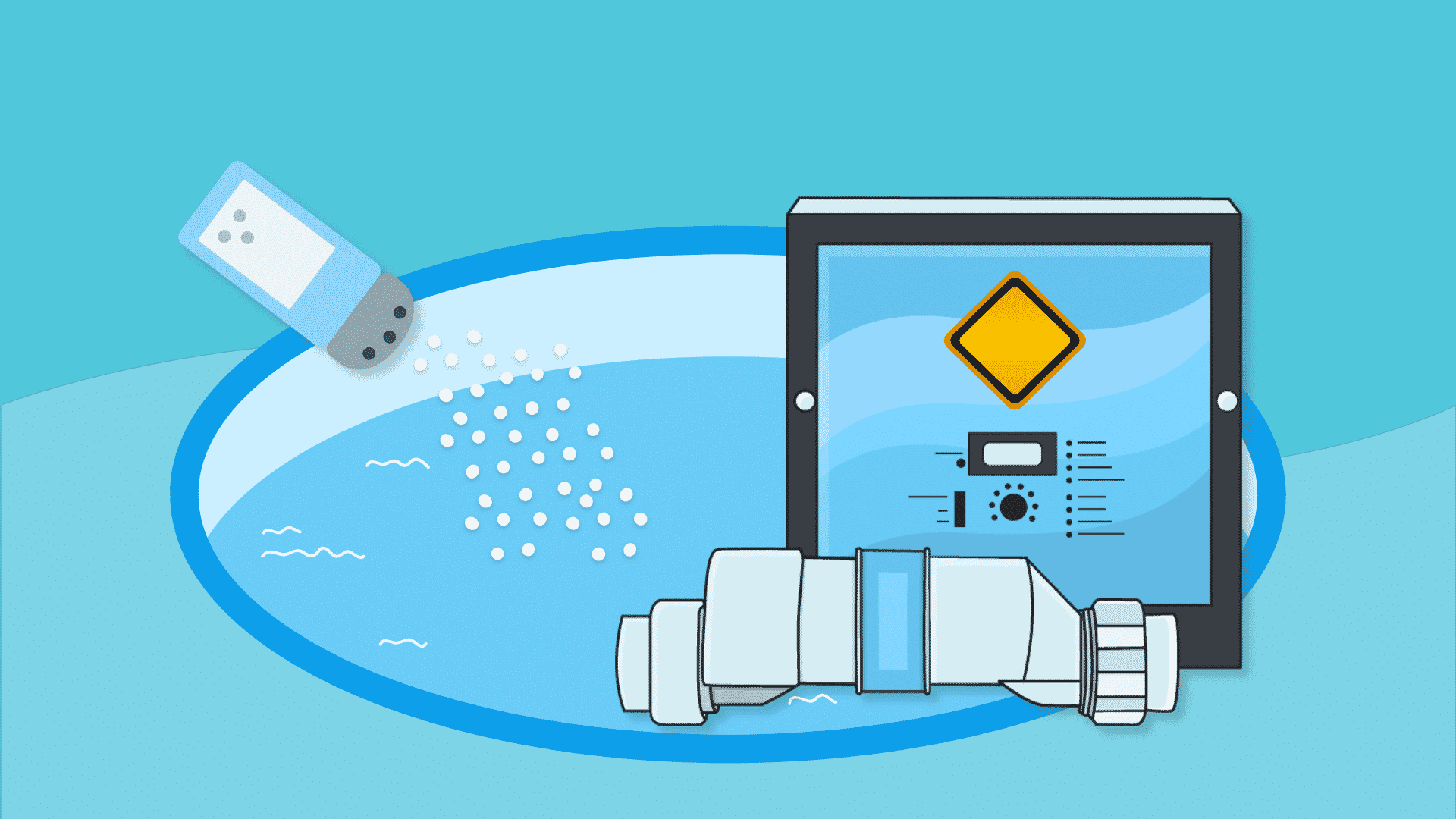
Salt water pools are different than traditional pools. So here are the common salt water pool maintenance mistakes and how to avoid them.
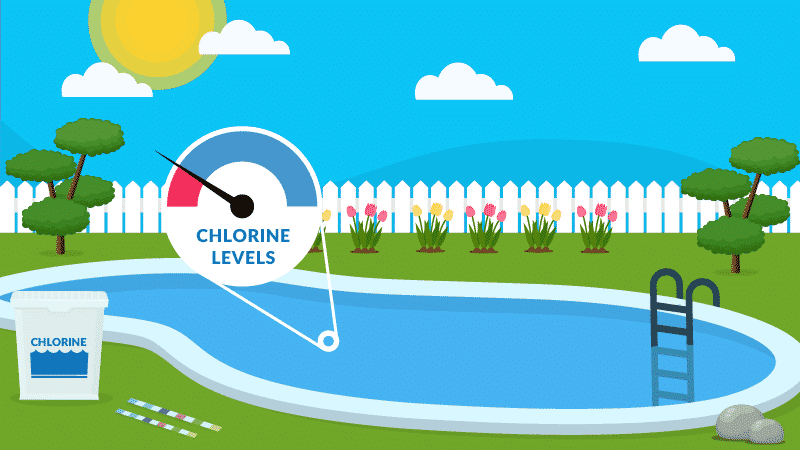
How do you know if your pool suffers from chlorine lock or demand? Hint: Only one of them is a valid problem. Find out which one and how to fix it.
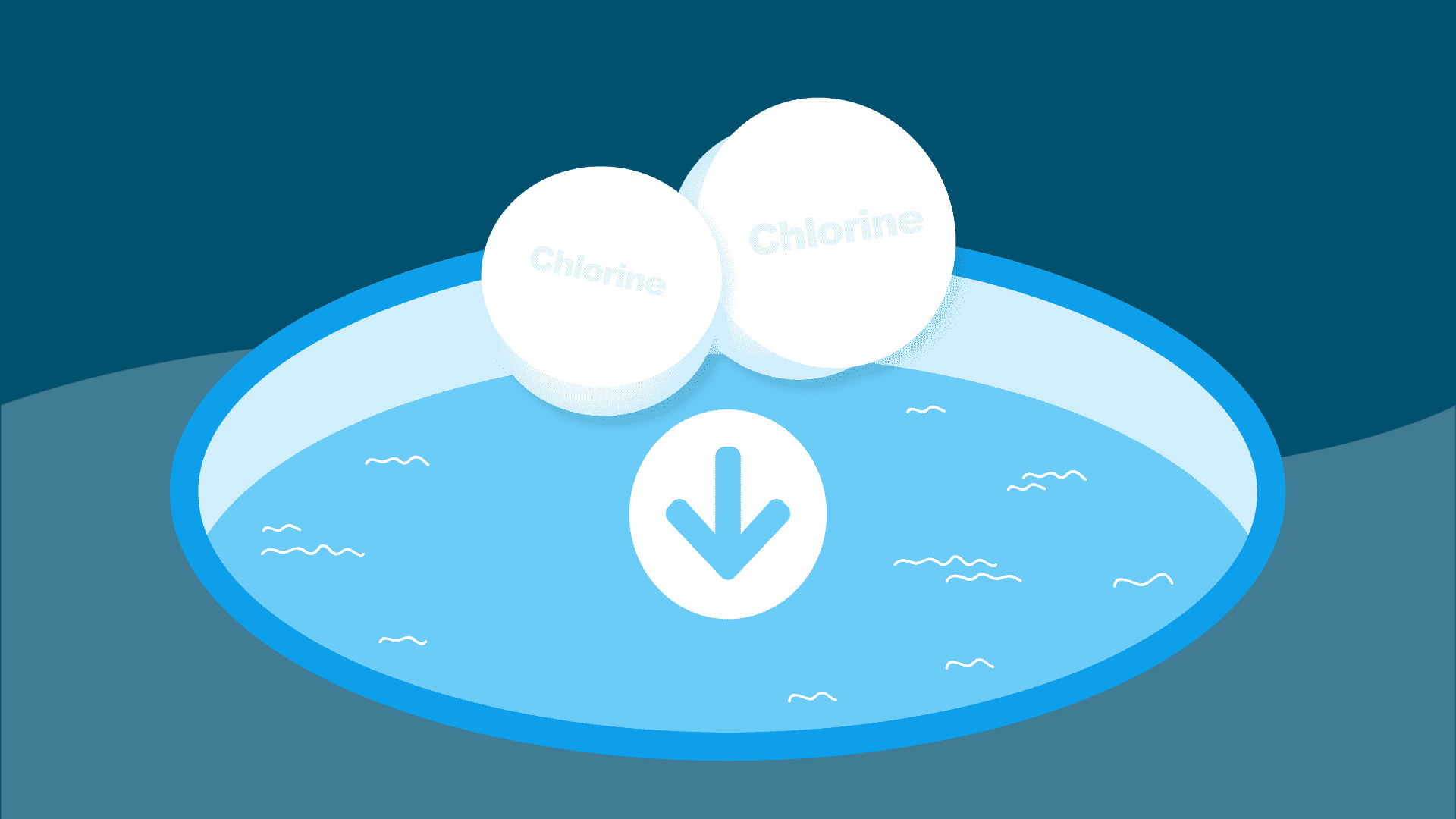
Is your chlorine too high? We’ll show you how to reduce your chlorine levels and usage in your swimming pool.
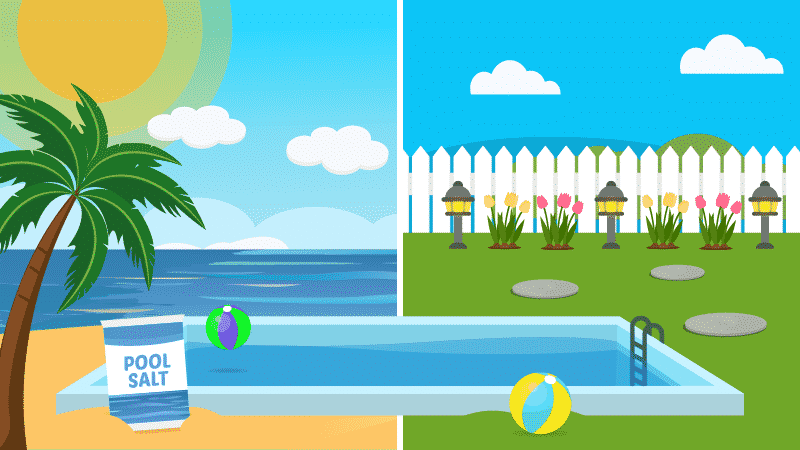
Considering salt water pool conversion? Learn why it’s a good idea, and how a salt chlorinator makes it easier than you might imagine.
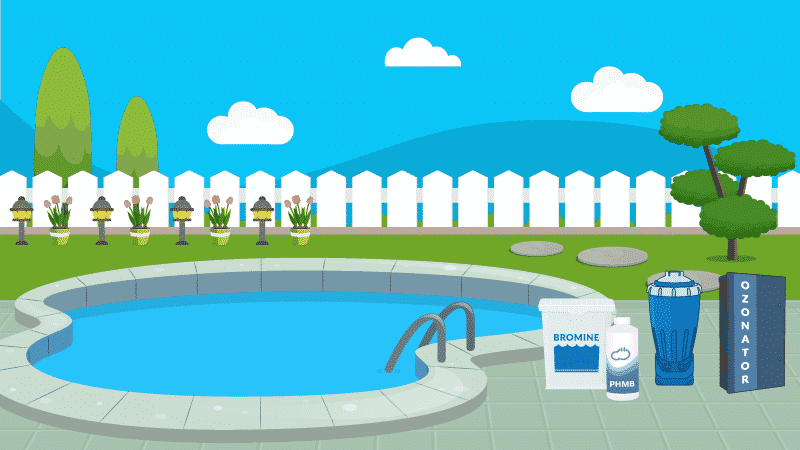
A chlorine free pool? How is that even possible? With one of the many alternatives available to sanitize your pool.
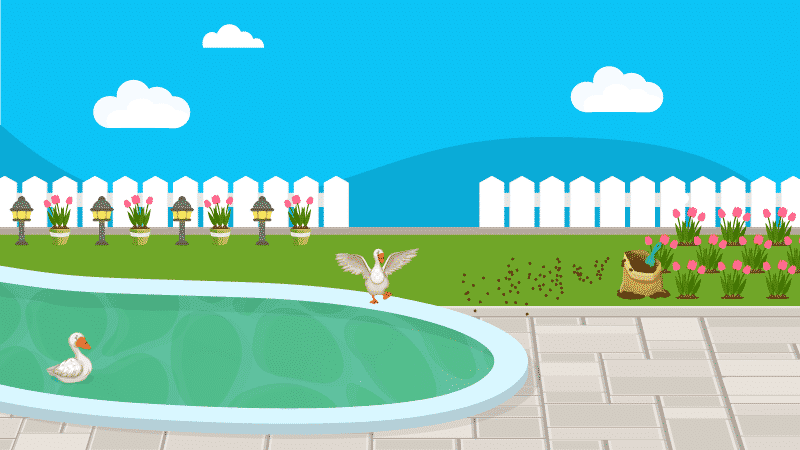
Nitrates in your pool? Only one solution: Get every bit of nitrate out! Or, do the logical thing, and educate yourself first. You’ll be glad you did.
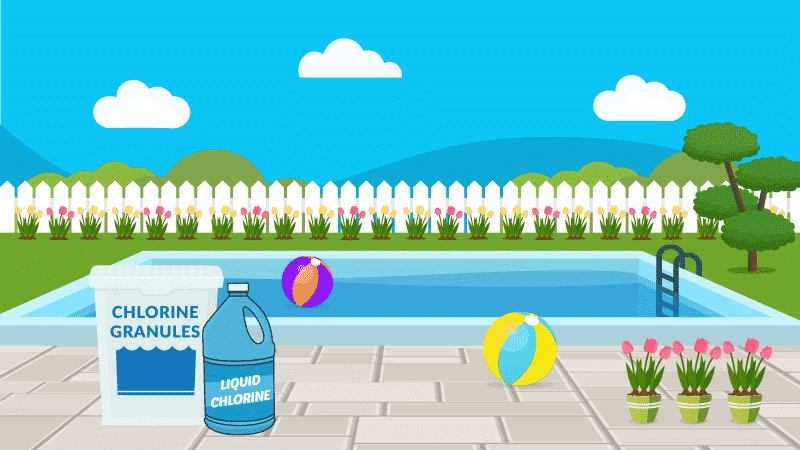
Which one's the better sanitizer? Liquid chlorine or chlorine granules? The answer won't shock you: It depends.
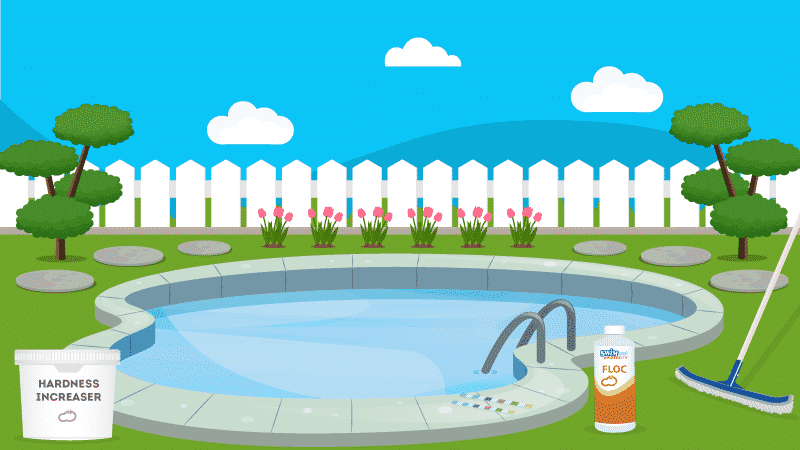
Learning how to manage and control the calcium hardness in your pool is a big step toward keeping it clean, clear, and swimmable all season long.
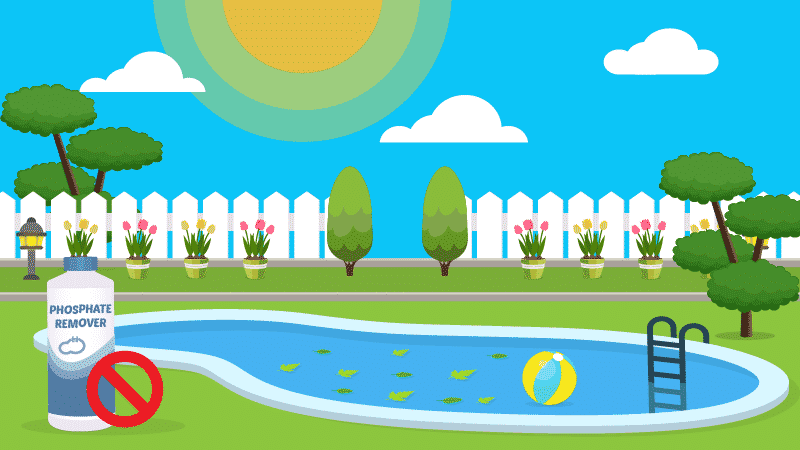
You've probably heard phosphate remover is essential to pool care. We did some research and the truth is, it's not. Learn why you should save your money.
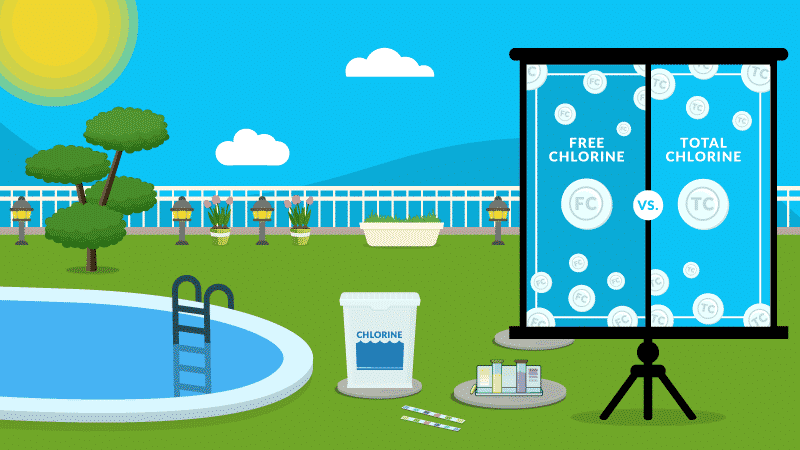
Is there enough free chlorine in your pool? If not, the pool's not as clean as you think it is. The key is understanding both total and free chlorine.
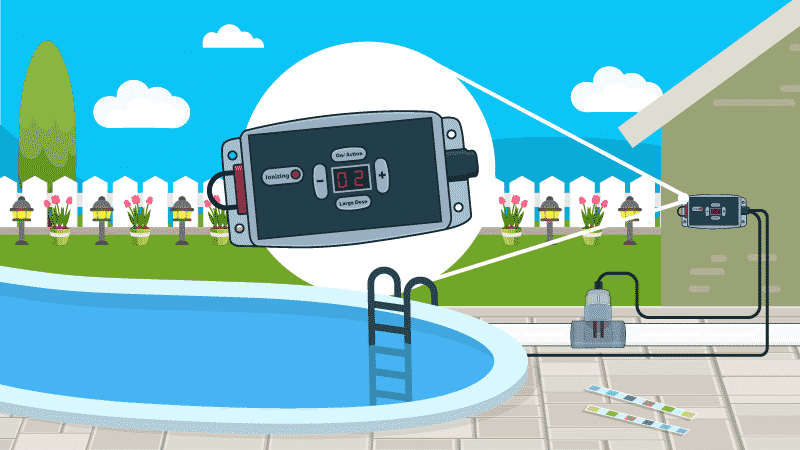
Are you sensitive to harsh chlorine? Just want a gentler sanitizer? A pool ionizer that uses mineral ions to clean the water may be the way to go.
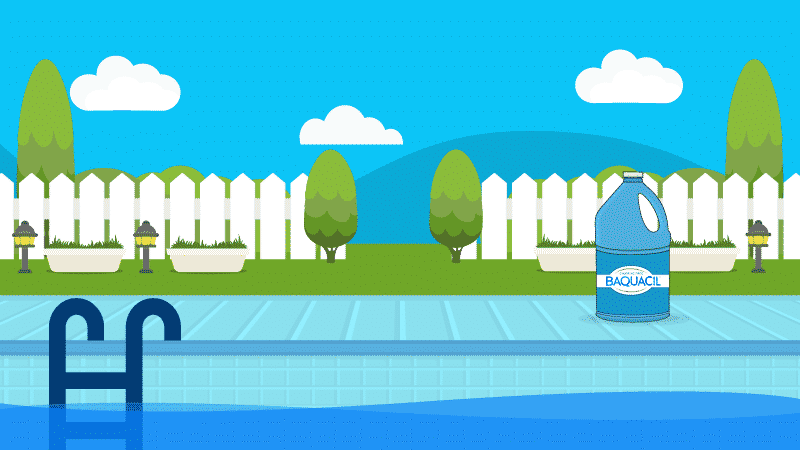
Tired of dry skin after every swim? Give Baquacil a try. It'll require added expense and extra work, but that may be worth the benefits of biguanide.
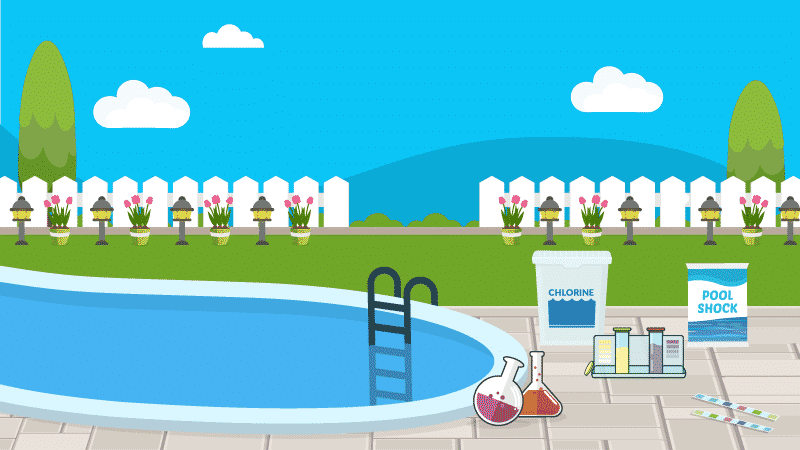
If you know which pool chemicals to use and when, and how to balance your pool chemistry, you're well on your way to being an expert pool owner.
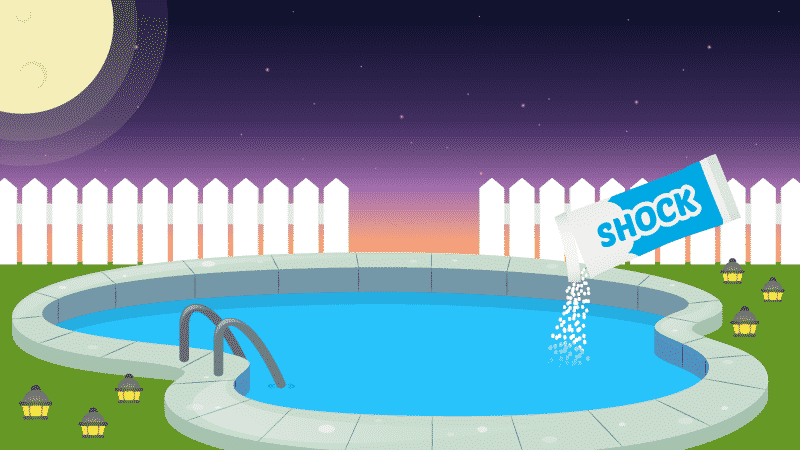
Does the type of pool shock you use make a difference? If you're not using calcium hypochlorite to shock your pool, you may want to reconsider your choice.
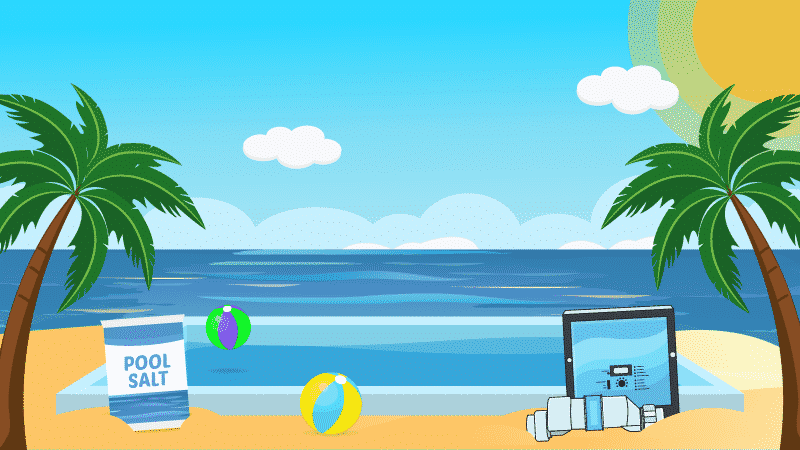
Been dreaming about a salt water pool? Dream no more! You can get softer water and less maintenance with a salt chlorine generator.
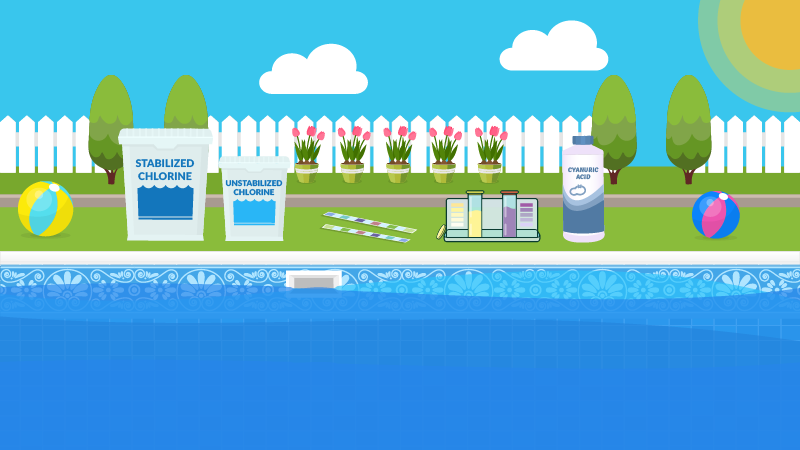
Learn the difference between stabilized and unstabilized chlorine so you can choose the one that will work best in your pool.
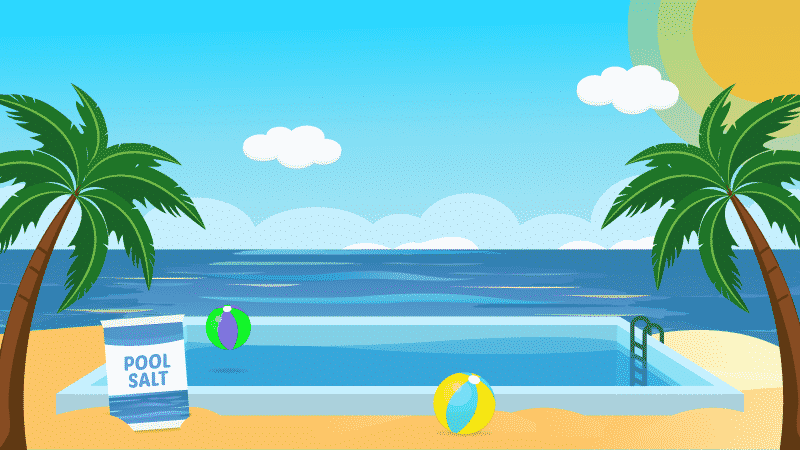
You could pour kitchen salt into your pool. Or you can make it easier on yourself. The right kind of pool salt will work better and save you money.
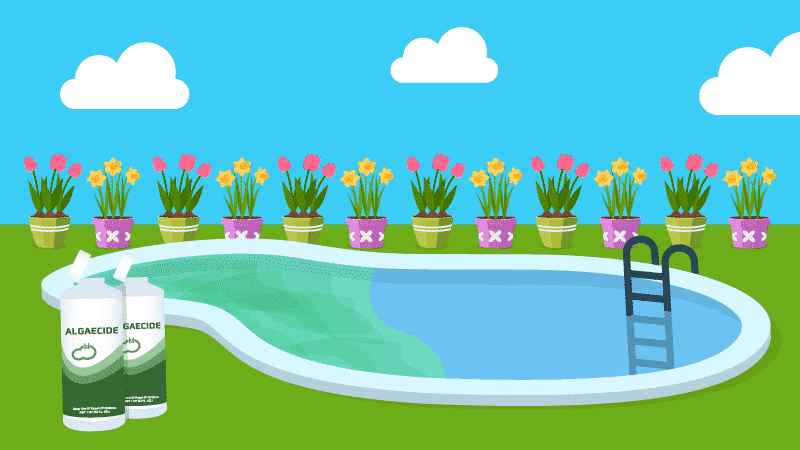
Before you buy algecide, ask yourself: Is it the best way to get rid of algae in your pool? Despite the name, the answer is may not be what you think.